Alexander Horwath
Alexander Horwath (b. 1964, Vienna) is an Austrian author, curator, film historian, critic, and director. He led the Viennale (Vienna International Film Festival) from 1992 to 1997 and served as director of the Austrian Film Museum between 2002 and 2017. His 2024 debut feature Henry Fonda for President reflects decades of engagement with film history, cinematic politics, and the interplay between political narratives and cultural experience. His curatorial work includes co‑ordinating the film programme for Documenta 12 in 2007.
A meditation on Henry Fonda’s screen legacy and the stories America tells about itself — idealism, doubt, and the distance between image and reality.
Andrew Norman Wilson
Andrew Norman Wilson (b. 1983, USA) is a New York–based conceptual artist and filmmaker whose multimedia practice includes video, installation, performance lectures and written essays. Wilson critically probes Silicon Valley’s labor structures, corporate mythologies, image cultures, automation and inequality. His early video Workers Leaving the Googleplex went viral in 2011. His work has shown internationally at Sundance, the New York and Rotterdam Film Festivals, and is held in MoMA, the Whitney and Centre Pompidou.
A surreal investigation into hidden labour at Google, where access, surveillance, and exclusion expose the deeper hierarchies shaping the digital economy and corporate power.
Aura Satz
Aura Satz (b. 1974, Barcelona; lives in London) is a visual artist, filmmaker, and writer whose interdisciplinary work combines film, sound, performance and sculpture. Her research investigates voice technologies, ventriloquism, acoustic machines, notation systems and human–machine relations. Recent projects such as Preemptive Listening (2024) collapse time, sound, machine and gender, shaping a poetic and conceptual sonic cinema.
What's a siren? What has it been? What can it be? An exploration of the siren in a myriad of forms.
Bahar Noorizadeh
Bahar Noorizadeh (b. 1988, Iran; based in London/Beirut) is an artist, writer, filmmaker, platform designer and researcher. She founded the platform Weird Economies and leads research into speculation, cybernetic socialism, economic imaginaries and justice futures through film, performance, installation and writing. Currently completing a PhD in Art at Goldsmiths, she teaches at the RCA and Design Academy Eindhoven, engaging with pedagogy as farming of alternative economic narratives.
A speculative sci-fi journey through neoliberalism’s promises and failures, where time travel becomes a metaphor for credit, access, and the cost of economic freedom.
Bertrand Bonello
Bertrand Bonello (b. 1968, Nice) is a French filmmaker, composer, screenwriter and occasional actor. Trained as a musician, he brings a formal precision and density to films such as The Pornographer, House of Tolerance, Nocturama and Coma. Often blurring fiction with archival and essayistic modes, Bonello explores themes of desire, power, youth and the spectral traces of history. *Coma* (2022) is a hybrid essay film that fuses dream states, online media and philosophical voiceover into a reflection on confinement and the erosion of reality. His films have screened at Cannes, Venice and Locarno, and reflect a singular voice in contemporary European cinema.
Blending animation and live action to tell the story of a teenage girl trapped in her home. Created during the COVID-19 pandemic, a surreal, nightmarish world unfolds. Perhaps only an essay film could capture to confusion of these years?
Bo Wang
Bo Wang (b. 1982, Chongqing; based in Amsterdam) is a filmmaker, visual artist and researcher with a background in physics (Tsinghua University) and fine arts (MFA, School of Visual Arts, New York). His award‑winning works, such as An Asian Ghost Story, examine power structures, trauma, ideology, spectrality and displacement in contemporary Asia. Exhibited internationally at MoMA (New York), Guggenheim, IFFR, CPH:DOX (New Vision award), DOKLeipzig (Golden Dove) and Visions du Réel. He is a PhD candidate at ASCA, University of Amsterdam, and currently teaches at LUCAS, Leiden University.
A haunting meditation on Hong Kong’s role in Cold War trade, where human hair becomes a ghostly link between imperial histories, migration, and spectral memory.
Chantal Akerman
Chantal Akerman (1950–2015, Brussels/Paris) was a Belgian filmmaker, installation artist and writer whose radical feminist and minimalist approach reshaped cinema. Her breakthrough Jeanne Dielman, 23 quai du Commerce, 1080 Bruxelles (1975) deconstructed domestic routine through extended takes and stillness, while films like News from Home, Je Tu Il Elle and D’Est deeply engaged themes of identity, exile, Jewish heritage and space. Over forty films and installations defined a legacy of formal rigor, emotional depth and feminist poetics.
An emotional exploration on border politics, relevant now more than ever. Personal, plural and captivating in its ability to make us listen and watch carefully.
Chris Marker
Chris Marker (1921–2012, France) was a pioneering filmmaker, writer and multimedia artist whose work shaped the cinematic essay as a form of philosophical inquiry. Best known for La Jetée and Sans Soleil, he explored memory, revolution and technology through montage, voiceover and archival fragments. His films, often elliptical and reflective, traverse time and space to interrogate personal and political histories.
Widely considered the foundational essay film, Sans Soleil is a contemplative journey through memory, time, and distant lands – Japan, Guinea-Bissau, and the Cape Verde islands – blending personal reflections with observations on modern existence.
Elysa Wendi
Elysa Wendi is a filmmaker and artist-curator whose practice spans the intersection of performance and the moving image. Based between Hong Kong and Singapore, she co-founded Cinemovement, a platform that incubates interdisciplinary films through collaborative laboratories across Asia. She has served as festival curator for the Jumping Frames Hong Kong International Movement-image Festival since 2021.
ERROR: ROOM 404 A POTENTIAL THREAT – the courage and doubt of artists continuing to create in uncertain times, resisting the rising media control in Hong Kong.
Franzis Kabisch
Franzis Kabisch is a German-Austrian artistic researcher, filmmaker, writer, educator, and PhD candidate at the Academy of Fine Arts Vienna. Her 2023 desktop-essay short getty abortions deconstructs the mediated image of abortion in mainstream stock photography and teen media, earning awards at Dok Leipzig, Kassel, Hamburg, Vienna Shorts, and Regensburg. Her work combines queer‑feminist film critique, body politics, and archival intervention, and she frequently writes essays and gives talks on reproductive justice, situated gaze, and visual culture
How do the media portray the images we associate with abortion? And how do these affect women who want to have one? An impressive blend between desktop and personal aesthetics.
Graeme Arnfield
Graeme Arnfield (b. 1991, UK) is an artist‑filmmaker, curator, composer, and writer whose essay films weave together networked imagery, archival materials, and sound to probe technology, ecology, and history. His work, ranging from shorts like Sitting in Darkness (2015) and Colossal Cave (2016), to feature-length essays such as Home Invasion (2023), uses investigative storytelling to interrogate digital networks, the circulation of ecological matter (like peat and asbestos), and the layered trajectories of local and global histories.
What happens when our homes and our dreams have been invaded? An exploration of the history of the doorbell and the implications of surveillance footage.
Harun Farocki
Harun Farocki (1944–2014, born in Czech Republic) was a German filmmaker, media artist, writer and critic. He studied at the Deutsche Film‑ und Fernsehakademie Berlin (DFFB) between 1966 and 1968 and produced over 120 films, essays and installations. Farocki’s work frequently dissects the mechanisms of images, exploring themes such as the militarization of vision, labor under capitalism, automation and propaganda. His precise, essayistic filmmaking makes visible the structures behind perception and power.
A spiritual sequel to the Lumière brothers’ iconic 1895 film, Harun Farocki’s Arbeiter verlassen die Fabrik traces how the image of workers exiting factories has persisted—and evolved—through cinema’s history.
Gegen-Musik, originally intended as a two-screen installation, sees Harun Farocki examine surveillance footage, exposing how the interplay of image and sound structures perception, authority, and control.
In Was ist los? Harun Farocki dissects media narratives and televised imagery in reunified Germany, exposing how everyday broadcasts shape public perception, ideology, and the construction of “reality.”
Hicham Gardaf
Hicham Gardaf (b. 1989, Tangier, Morocco; lives in London) is a Moroccan filmmaker, visual artist, photographer and researcher whose cross-disciplinary work interrogates urban transformation, labored landscapes and sonic memory. Educated through self-directed study and prize-supported fellowships (such as the Fondazione MAST Photography Grant), his practice has taken shape through image, sound and installation. In Praise of Slowness (2023) has been screened within Forum Expanded at Berlinale 2024 and featured at festivals including Glasgow Short Film Festival and Open City Documentary Festival, London.
The ears tell the eyes where to look.” An exploration of how waiting and listening creates stillness, in an effort to reverse the speed of capitalist rhythms.
Ho Rui An
Ho Rui An (b. 1990, Singapore) is an artist, filmmaker, writer and educator whose research‑based practice spans film, performance, essay, lecture and theory. His work addresses labor, technology, governance and pedagogy in globalised Asia, often through durational, speculative works such as Student Bodies (2023). Ho’s interdisciplinary projects have been shown at venues like Centre Pompidou, and he actively contributes to debates in art and theory internationally.
An investigation of a factory gate in China leads to an in depth reflection on the history of cinema and capitalism.
Johan van der Keuken
Johan van der Keuken (1938–2001, Amsterdam) was a Dutch photographer, documentary filmmaker and author. Launching his first photo book at age 17, he published nine books and created 55 documentaries over a four‑decade career, many of which focused on outsiders, disability, labor and daily life. Van der Keuken’s work, defined by a poetic essayistic style, blurs the boundaries between artistic expression social documentary.
Johan van der Keuken’s formally distinct essay film navigates the politics of vision across Europe, but also experiments with cinematic portraiture in wild ways. Through a mosaic of vignettes—of faces, places, and voices—this classic essay film explores the desire and fear of being seen, the struggle for self-perception, and the tensions within shifting cultural landscapes. A prescient film in many ways.
Johannes Binotto
Johannes Binotto (b. 1977, Switzerland; based in Lucerne and Zurich) is an experimental filmmaker, video essayist and media theorist whose academic practice interrogates perception, spatiality and the uncanny in contemporary image culture. A professor of Film and Media Studies at the Lucerne School of Design and Art and senior lecturer at the University of Zurich, he leads the Swiss National Science Foundation project “VideoEssay. Futures of Audiovisual Research and Teaching,” and publishes on cinema, psychoanalysis, literature and architecture.
Exploring boundless space for meaning-making. This essay film opens our eyes to the interplay of images, memory, and personal interpretation.
Judith Westerveld
Judith Westerveld (b. 1985, South Africa / Netherlands; lives between Amsterdam and Cape Town) is an audiovisual artist, filmmaker and artistic researcher whose moving‑image work engages colonial archives, oral histories and linguistic erasure. Trained at Gerrit Rietveld Academie and University of Amsterdam (MA Artistic Research, cum laude), her video-installations and film essays—distributed by LIMA and ARGOS—navigate memory, language and postcolonial transformation in works such as The Sending of the Crows and A Few Common Phrases.
Through a multilingual response to a sound recording from a man called Mukalap, in the no longer living language !ora, colonial legacies echo through.
An audiovisual meditation of a language and culture from a colonial past, “moving through time, reflecting on the truth of the people forgotten”.
Kamal Aljafari
Kamal Aljafari (b. 1972, Ramla, Palestine; based in Berlin) is a pioneering Palestinian filmmaker and visual artist whose formally nuanced work reconstructs memory and dispossession. A graduate of the Academy of Media Arts in Cologne, his poetic cinema spans feature films (The Roof, Port of Memory, Recollection) and installations such as The Camera of the Dispossessed. His films have been screened at Berlinale, Rotterdam, Locarno and CPH:DOX and at institutions including MoMA and Tate Modern.
Red silhouettes draw an alternative future in looted Palestinian archival footage. A compelling film re-interpreting a past and possible future.
Lea Hartlaub
Lea Hartlaub (b. 1981, Frankfurt, Germany) is a self‑taught photographer, filmmaker and visual essayist whose work investigates myth, ecology, post‑socialist histories and the poetics of representation. Her essay documentaries—including Sunny Night (2017) and sr (2024)—employ found footage and poetic montage to explore cultural memory and the symbolic resonance of mythic figures in collective imagination.
Traversing global landscapes and human activities through a recurring giraffe motif, themes of power, culture and perception are explored.
Lena Windisch
Lena Windisch (b. 1991, Germany; based in Switzerland) is a visual researcher and filmmaker grounded in communication and information design. Educated at Burg Giebichenstein and Design Academy Eindhoven, her moving-image work, including Searching for the Perfect Gentleman (2019), combines typographic sensibilities and documentary enquiry to explore global visual forms, agency and informal aesthetics.
How can one travel the world by still staying put? The journey of discovering the story behind a poster hanging at an African barbershop’s window.
Lis Rhodes
Lis Rhodes (b. 1942, UK; based in London) is a seminal figure in feminist and experimental film whose multidisciplinary practice reshapes the political and poetic potential of image, sound and notation. Co-founder of the women’s distribution network Circles (later Cinenova), curator at the London Filmmakers’ Coop and longtime Slade lecturer, her landmark works—such as Dresden Dynamo (1972), Light Music (1975) and Whitehall (2012)—employ minimal imagery, immersive sound and political poetics to dissolve conventions of cinematic spectatorship.
Revered essay filmmaker Lis Rhodes' latest work opens with a haunting reference to the atomic bomb in Hiroshima, setting the tone for an essay film that explores the intersections of sound, power, and history. Through fragmented imagery and often jarring audio, Rhodes incites us to reflect on the lingering impacts of violence and the structures of control in modern life.
Lucia Nimcová and David Petráš
Ethnographers Lucia Nimcova and David Petráš work together on audiovisual research in the Carpathian Mountains since 2020. They established the foundation nohami.com which creates sustainable conditions for preserving and sharing knowledge of people living in remote villages in the border-zone of Slovakia, Ukraine and Romania.<br>“We collect songs from older women with lyrics closely tied to their life stories. We volunteer with their needs. We learn to sing and play the instruments from local musicians. We experiment with when and how certain existences could be documented and shared with a wider public, understanding the importance of the specific contexts.”<br>Lucia Nimcová is an award-winning photographer and visual artist, David Petráš is a musician and sound artist. They work and live in Brussels.
Practices of witchcraft and healing rituals in folk songs and stories of survival from older women living in remote locations on the border zone of Slovakia, Ukraine, and Romania become transition zones to a mythical, unknown world.
Manthia Diawara
Manthia Diawara (b. 1953, Bamako, Mali; based in New York) is a writer, filmmaker, cultural theorist and University Professor of Comparative Literature and Film at NYU, where he directs the Institute of African American Affairs. Educated in France and the U.S., his books (African Cinema: Politics and Culture, We Won’t Budge) and films (Sembène: The Making of African Cinema, AI: African Intelligence, Angela Davis: A World of Greater Freedom) critically weave diasporic history, anti‑colonial thought and cinematic narrative.
A reflective portrait of life in a Senegalese coastal town, where shifting landscapes prompt conversations about the environment, labour, and our shared place in it.
Maria Iorio and Raphaël Cuomo
Maria Iorio and Raphaël Cuomo are artists and filmmakers. Favouring a collaborative praxis and long-term research, their recent projects engage with past and present global mobilities. Their films manifest unheard voices, diasporic experiences and resistant subjectivities. They have created film programmes and exhibitions that revisit the historiography of moving image practices and ‘minor cinemas’. Their work has been presented in various exhibitions and film festivals, including Documenta 14, Courtisane, DOK Leipzig, Visions du Réel – where their film Chronicles of that time was awarded the Special Jury Award.
Undead Voices (2019–2021) explores the remnants of 1970s Italian feminist activism through a decaying Super 8 film. Blending archival fragments, personal memory, and sound collaborations, it reimagines how lost histories can speak.
Maryam Jafri
Maryam Jafri (b. 1972, Karachi, Pakistan; based in Copenhagen and New York) is a research-driven multimedia artist and educator whose films, photographic tableaux, performance and sculptural installations examine the visual culture of political economy, capital and colonial imaginaries. Her projects such as Independence Day 1934–1975 and Automatic Negative Thought deploy archival triggers, conceptual tableaux and filmic montage to expose systems of representation shaping labor, identity and capital.
Mariam Jafri vs. Maryam Jafri explores identity and authorship through a sculptural work that shifts from object to photo to video, each stage marked by superimposed watermarks. Jafri's self-reflection questions the commodification of art and the fluidity of value in a global context.
Mattijs van de Port
Mattijs van de Port (b. 1966, the Netherlands) is a visual anthropologist, writer and filmmaker whose cinematic practice emerges from fieldwork in Serbia, the Netherlands and Brazil. Professor at the University of Amsterdam with a PhD in cultural anthropology, his cinematic works —including Saborear Frutas Brasileiras (2013), The Possibility of Spirits (2016), Knots and Holes (2018) and The Body Won’t Close (2021)—are ethnographic essay films that explore sensual encounters, cultural visuality and temporal thresholds. His monographs and films interrogate how everyday material infrastructures and religious practices shape the lived real.
Wanderers of all paths of life gather through the lens of the anthropological filmmaker, in search of a world larger than the one they know.
Michela Meliddo
Michela Meliddo (b. 1999, Gravina in Puglia, Italy) is graphic designer and filmmaker based in The Hague (NL). Through field research and narrative fiction she investigates contemporary issues that involve human relationships with nature and technology. Her research specifically addresses the objectification of the natural world through technological processes that have produced a dichotomy between the ‘human’ and ‘natural’.
A poetic reflection on artificial light and the disappearance of night. In this imagined future, nature flickers in pink and black – disrupted, studied, and slowly fading.
Miko Revereza
Miko Revereza (b. Philippines; based in the USA) is an experimental filmmaker whose deeply personal practice reflects undocumented migration, digital infrastructure and colonial legacies. His acclaimed essay films No Data Plan (2019) and Nowhere Near (2020) use on‑call phone dialogue, train travel and hybrid narrative structures to evoke familial displacement and geopolitical awakening. His work, recognized by the Criterion Collection and the Vilcek Creative Promise Prize, is both intimate and structurally urgent.
Nowhere Near by Miko Revereza is a poignant essay film that explores displacement and the immigrant experience. Through personal meditations and striking visuals, Revereza reflects on the complexities of belonging and the struggle to bridge cultural gaps.
Miranda Pennell
Miranda Pennell (b. 1963, UK; based in London) is a London-based artist-filmmaker whose work engages archival imagery from British colonial contexts to meditate on memory, imagination and imperial legacies. Initially trained as a dancer, she shifted to essayistic filmmaking, exploring choreography in everyday life before studying visual anthropology (MA Goldsmiths, PhD Westminster). Her award-winning films—including Why Colonel Bunny Was Killed and The Host—interrogate how historical documents shape present-day imaginaries and colonial histories.
Zooming into a disturbing image of detained Gazans circulating on social media, our passive consumption and complicity of the genocide is questioned.
Nguyễn Trinh Thi
Nguyễn Trinh Thi (b. 1973, Vietnam; lives in Hanoi) is a pioneering independent filmmaker and media artist whose films and installations interrogate memory, archival silence and social trauma in post‑war Vietnam. Educated in journalism, photography and international studies (in the U.S.), she creates investigative video essays and documentary experiments that deploy found footage, sound and narrative to uncover marginalized histories and alternative imaginaries.
Do you trust sound or image more? Listen closely to the sounds and images of the Indigenous peoples in the Central Highlands of Vietnam.
Explores the erasure of indigenous Cham culture amid Vietnam’s nuclear power plans through a letter exchange between a man and a woman.
Nika Pećarina
Nika Pećarina (b. 1992) lives in Zagreb where he is busy with audiovisual and performing arts, ceramics, poetry, and an interest towards gastronomy. He takes notice of sex, thingness, and the transformation of matter, ie. the relation of work and the physical, followed by the distinctiveness and effects of media, measure, form, and the visible, delicacy, smoothness, and smallness.
“The enduring material bond between soil and soul”; entanglement of the earth’s materiality and the inner world, poetically reflected upon by a young Czechian artist.
Rupert Cox and Angus Carlyle
Angus Carlyle and Rupert Cox are UK‑based collaborators working across experimental film, sound art, anthropology and landscape. Notable projects include Air Pressure (2017) and Zawawa: the sound of sugar cane in the wind, which uses field recordings, oral testimony, and sonic environments to explore wartime memory, ecology, acoustics and the impact of US military bases on Okinawa’s residents over a decade of research.
Exploring the memory of Okinawan islander Yogi-San and his experiences sheltering from the 1945 US Naval bombardment, the resonant space of the cave turns war memory into a way of listening.
Sasha Litvintseva and Beny Wagner
Sasha Litvintseva and Beny Wagner collaborate as filmmakers, writers and media researchers whose work explores the intersections of media, ecology, science history and epistemology. Litvintseva (b. 1989, Murmansk; PhD Goldsmiths, senior lecturer at Queen Mary University) and Wagner (b. 1985, Berlin; Bard College, Jan van Eyck fellow) have co-created a trilogy of short films—A Demonstration (2020), Constant (2022) and My Want of You Partakes of Me (2023)—that trace the political histories of monsters, measurement standards and digestion. Their practice spans cinema, writing (as in All Thoughts Fly and Geological Filmmaking) and conceptual research.
A poetic and philosophical reflection on (un)ethical digestion, revealing the interdependence of the human body on its surroundings, for “all that you change changes you”.
Sergei Loznitsa
Sergei Loznitsa (b. 1964, Belarus; raised in Kyiv) is a Ukrainian director of Belarusian origin known for both documentary and fiction films. A former applied‑mathematician who worked on AI research, he studied cinema at Moscow’s VGIK before turning to filmmaking in the mid‑1990s. His documentaries (Maidan, Austerlitz) and features (My Joy, In the Fog, The History of Natural Destruction) offer nuanced, often bleak examinations of post‑Soviet politics, memory, collective history and the erosion of truth in contemporary society.
Looking at archival footage of the British targeting of German civilians during WWII, moral ambiguities and the silence surrounding these actions are explored.
Susanna Tomassini
Susanna Tomassini is an Italian visual designer based in the Netherlands. Through her practice she seeks new narratives within seemingly mundane subjects. Her work is multidisciplinary, merging and alternating between digital and printed media. Trained as a graphic designer, she is now expanding her practice by exploring video as an artistic medium.
The Southern Thruway weaves a personal story about housing precarity with the political idea of belonging, exploring themes of uncertainty, forced collectivity, transcience, and unconventional love.
Toshiya Tsunoda
Toyisha Tsunoda (b. 1964, Kanagawa, Japan) is a pioneering sound artist whose field recordings, acoustic collages and vibrational sculptures explore the phenomenology of perception and landscape. Trained originally in oil painting at Tokyo National University of Fine Arts and Music, Tsunoda approaches field recording not as documentation but as subjective depiction—an immersive method of hearing place as alive, impermanent and in flux. Works such as Landscape and Voice and the Extract from Field Recording Archive series map vibrations and voice across spaces, drawing attention to the physical and poetic experience of listening.
Rather than documentary or naturalistic, sound artist Toshiya Tsunoda’s field recordings explores the relation between space and cognition, the depth of the landscape and the vital breathing of things.
Veronica Munteanu, Karin Nakajima, Sara Ouljour
Karin Nakajima, Sara Ouljour, and Veronica Munteau are filmmakers and students whose practices converge around the essay film as a space for reimagining politics, memory, and belonging. Nakajima approaches the form through its affinity with the unconventional, embracing strangeness as a way to probe how remembrance and identity take shape. Ouljour, based in Rotterdam and born in Morocco, turns to both film and writing to address questions of migration and anti-imperialism. Munteau, a Moldovan filmmaker and writer, moves fluidly between poetry, prose, and experimental cinema, her work unfolding through an intuitive process of noticing, questioning, and remembering. Together, their practices highlight the essay film’s potential as both a tool of inquiry and a mode of poetic and political expression.
Exploring industrial decline’s lingering impact through past trauma – Haunted, the Hollow reflects on memory, community, and the uncertainty of the future.
Vincent Meessen
Vincent Meessen (b. 1971, Baltimore, USA; lives in Brussels) is an artist, filmmaker, curator and researcher whose transdisciplinary practice reorients narration around colonial histories and multiple gazes. A founding member of collectives like Universal Embassy and Jubilee, he represented Belgium at the 56th Venice Biennale in 2015 with Personne et les autres. His work, including films such as Juste un mouvement, uses archival gestures, institutional critique and polyphonic strategies to destabilise fixed historiographies and foreground collective subjectivities.
Juste un mouvement by Vincent Meessen revisits Jean-Luc Godard’s La Chinoise through the story of Omar Blondin Diop, blending essay, biography, and political cinema into a layered recontextualization.
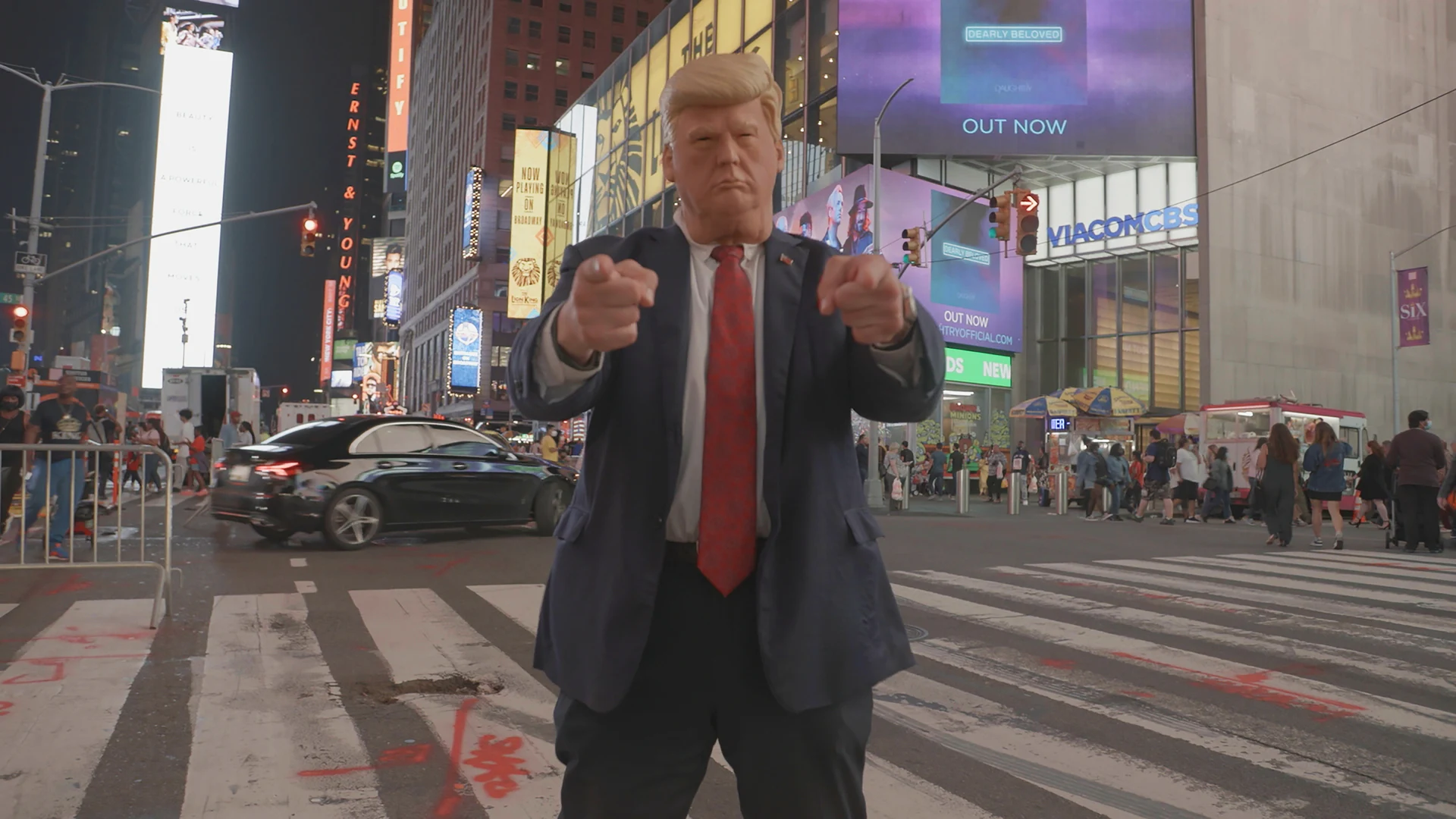
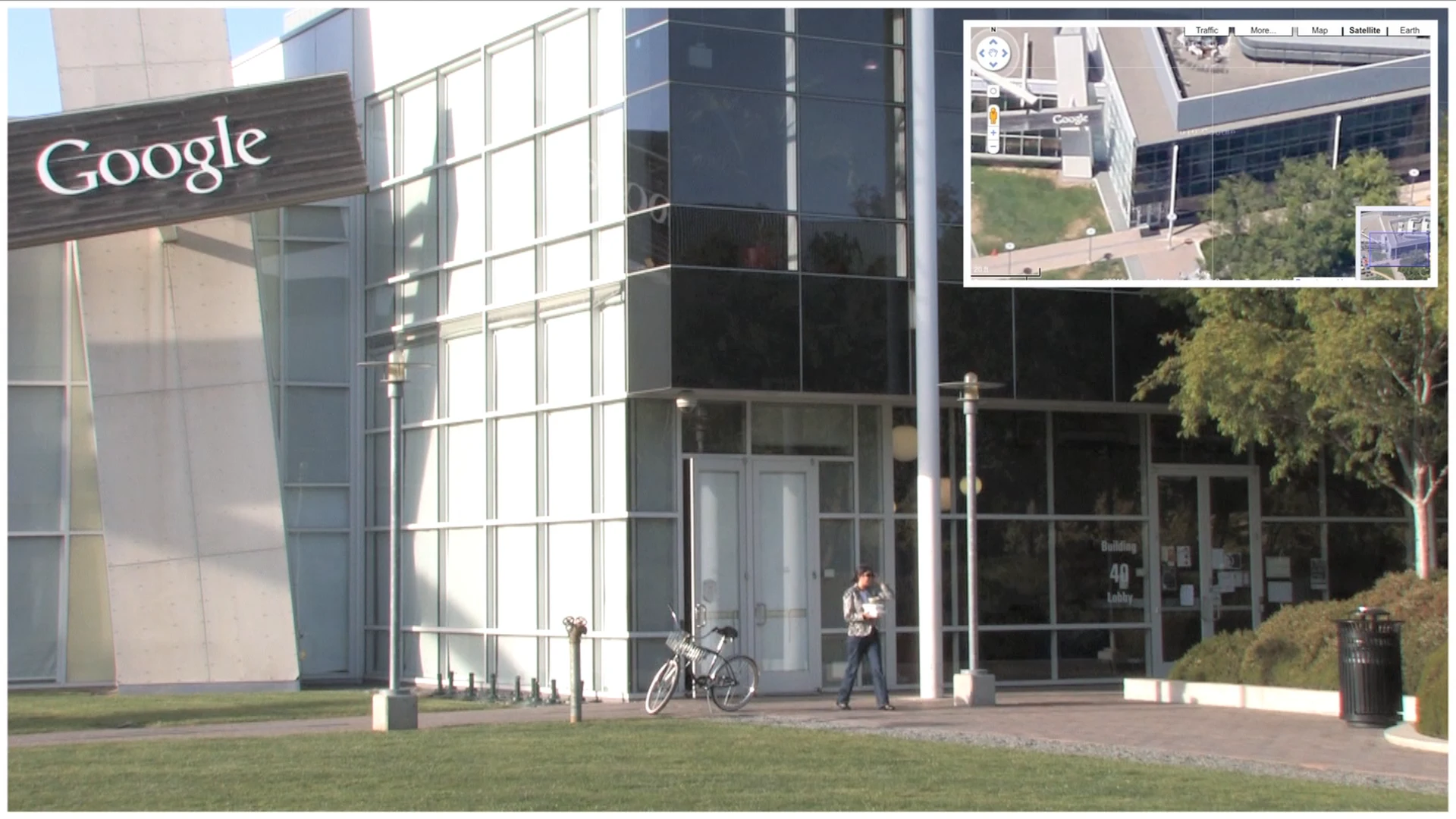
.webp)
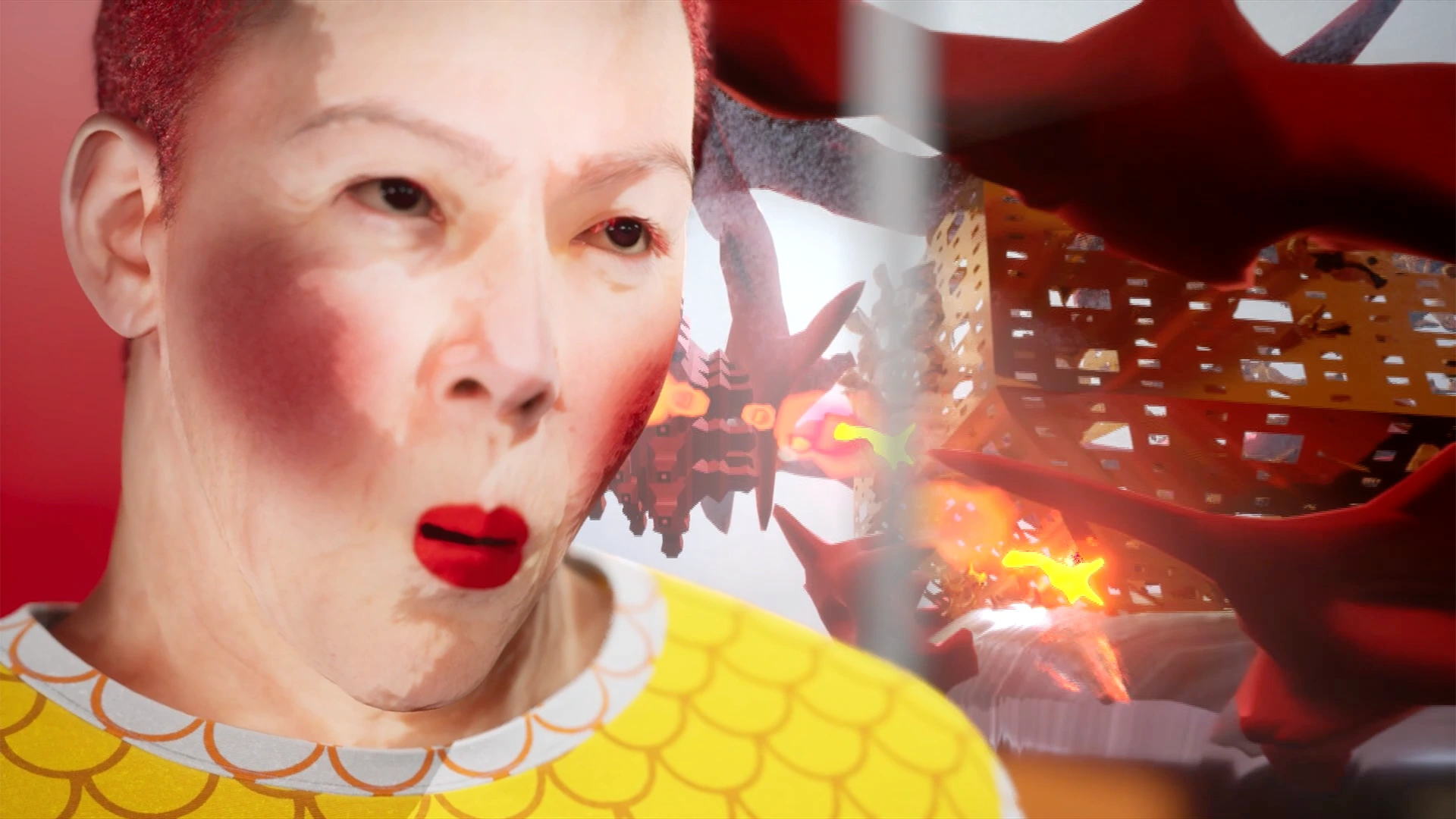
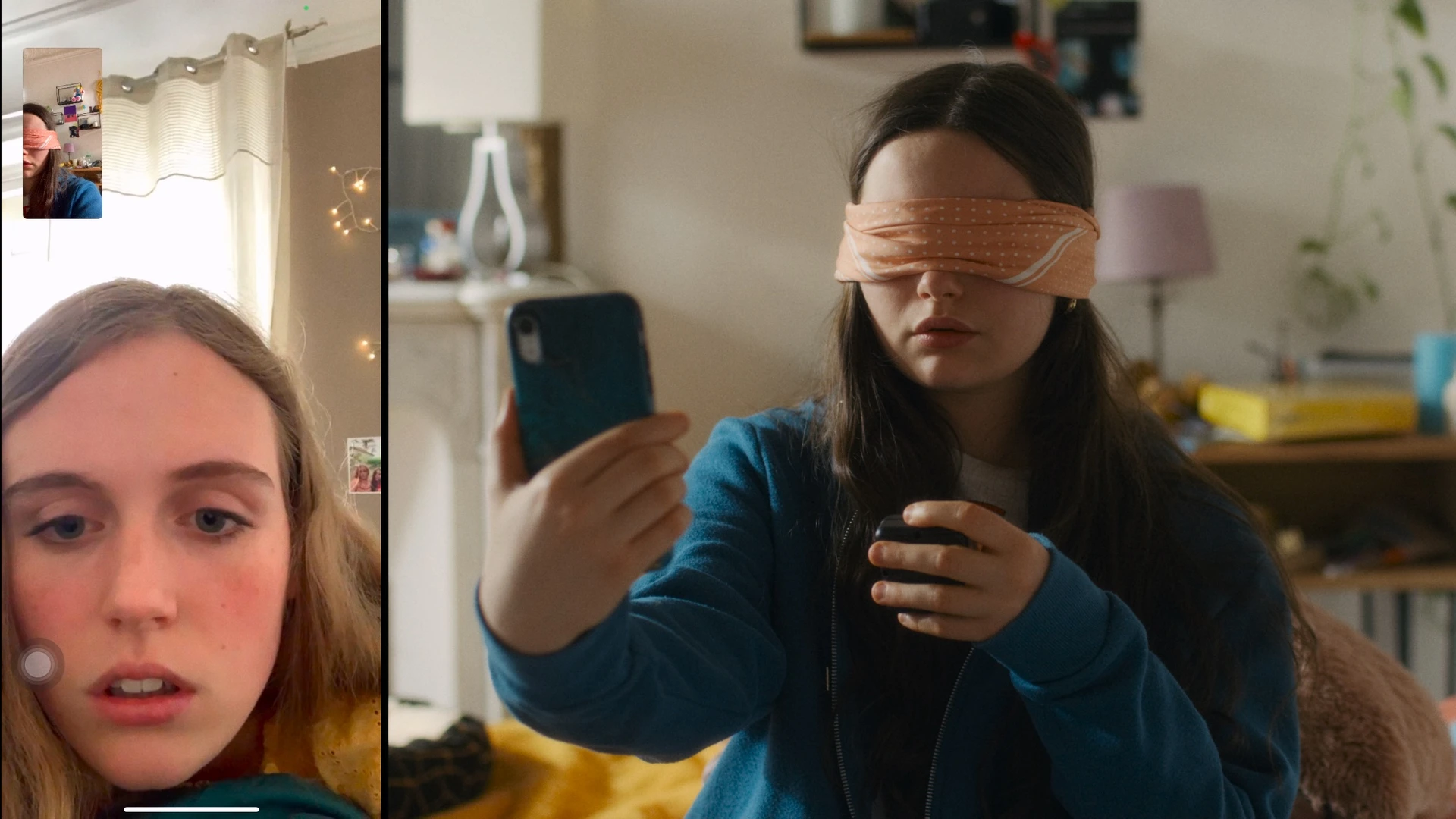
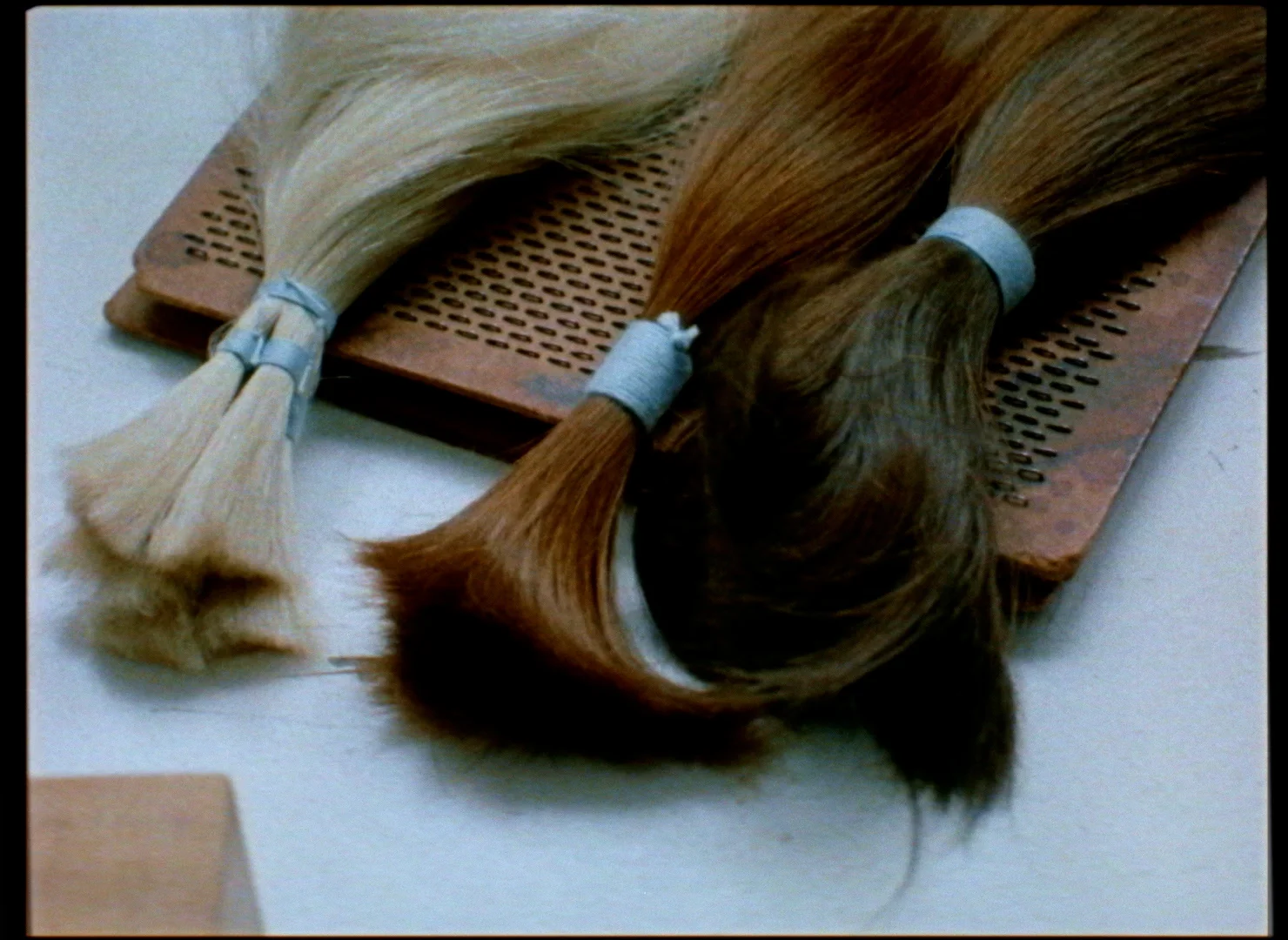
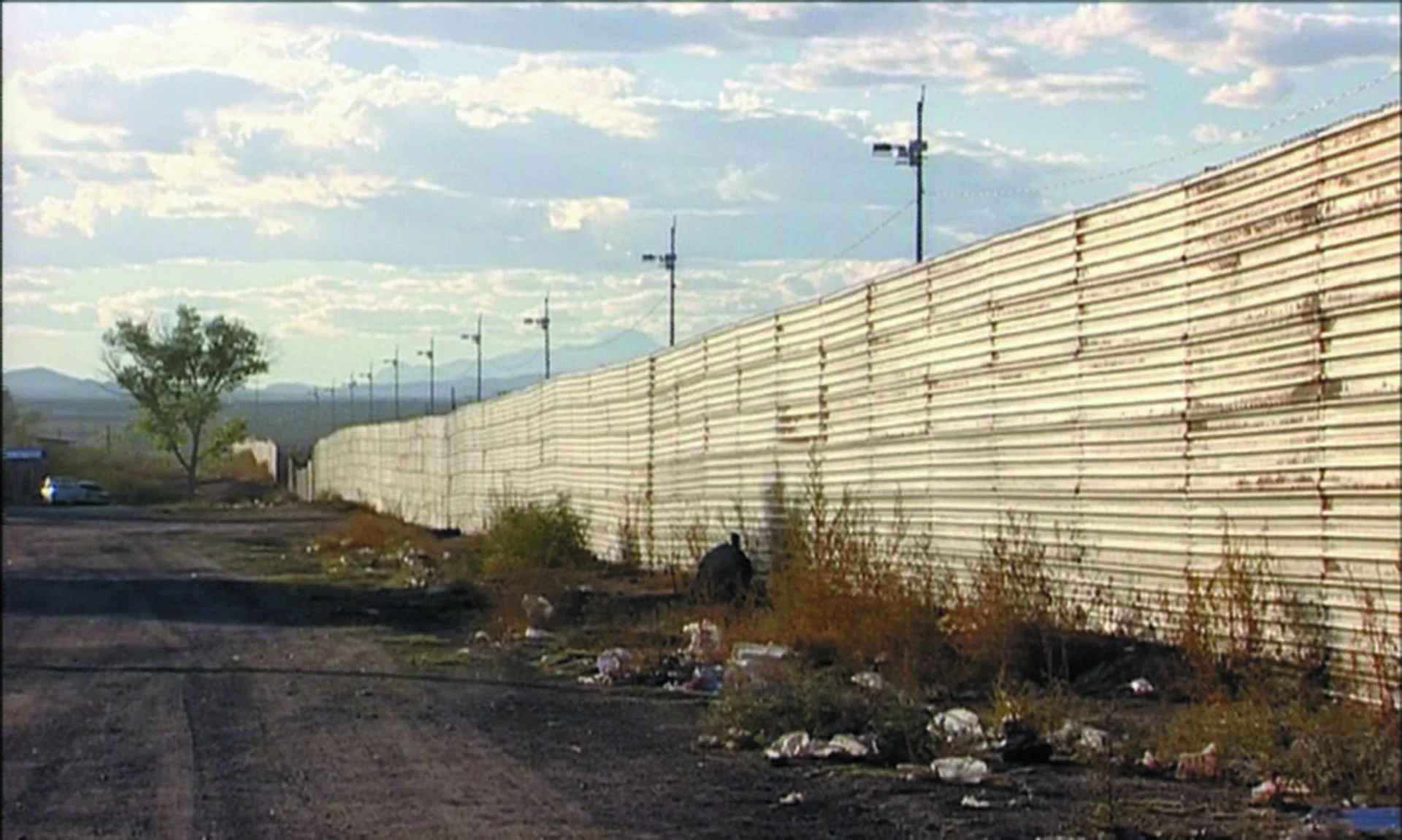
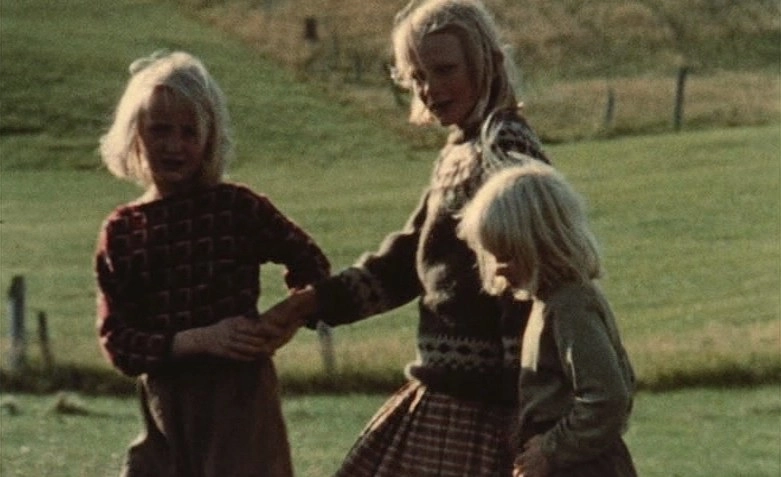
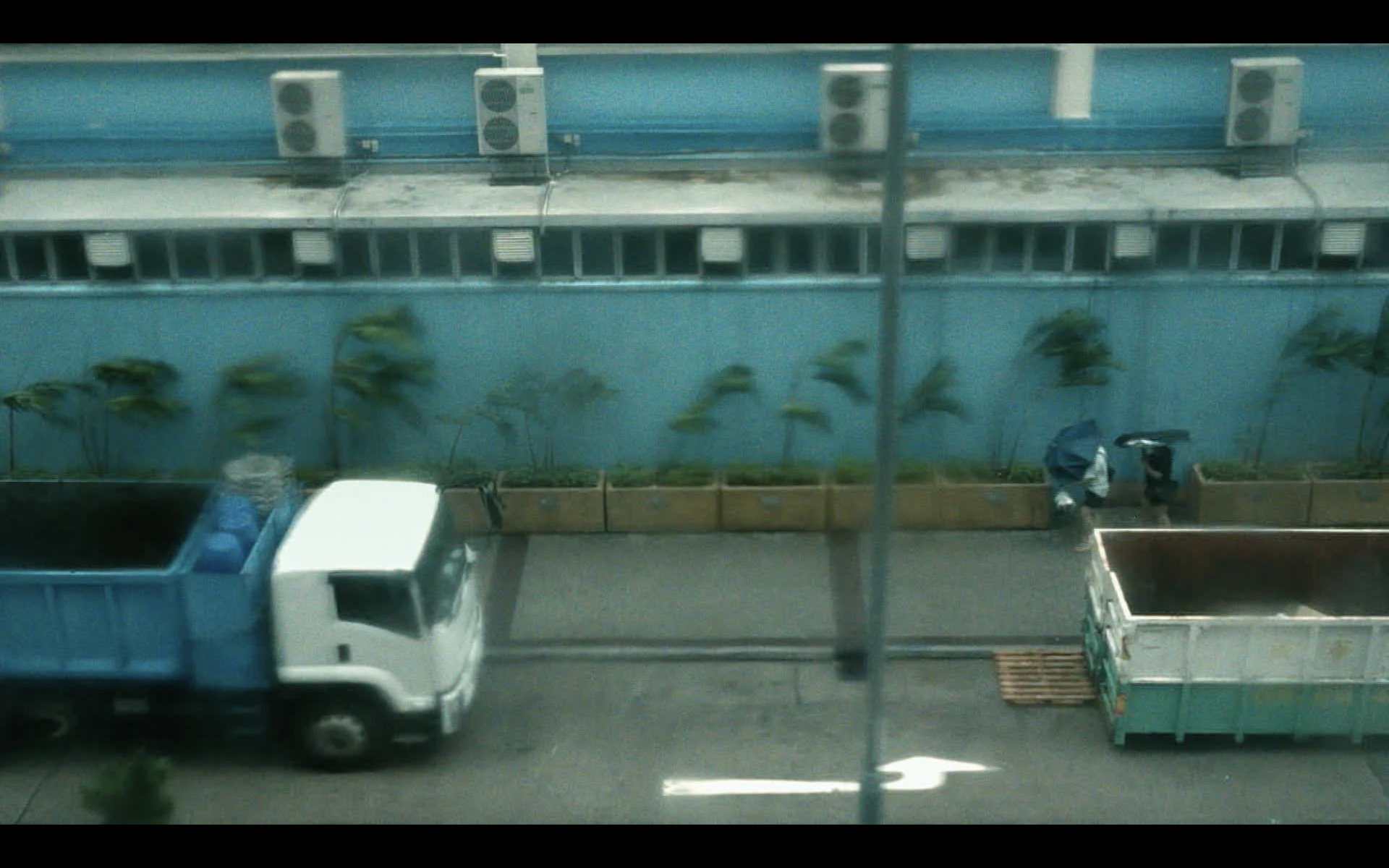
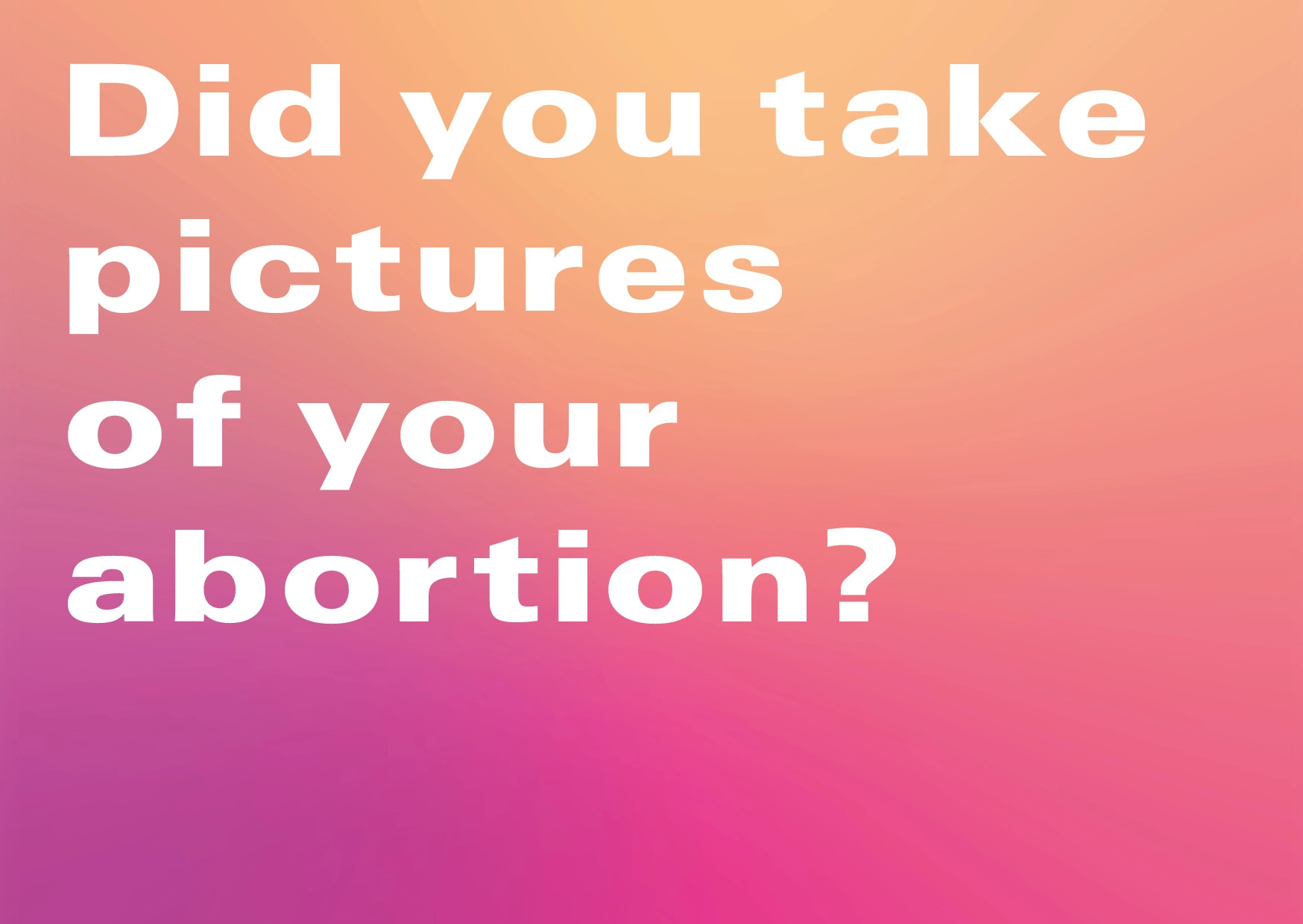
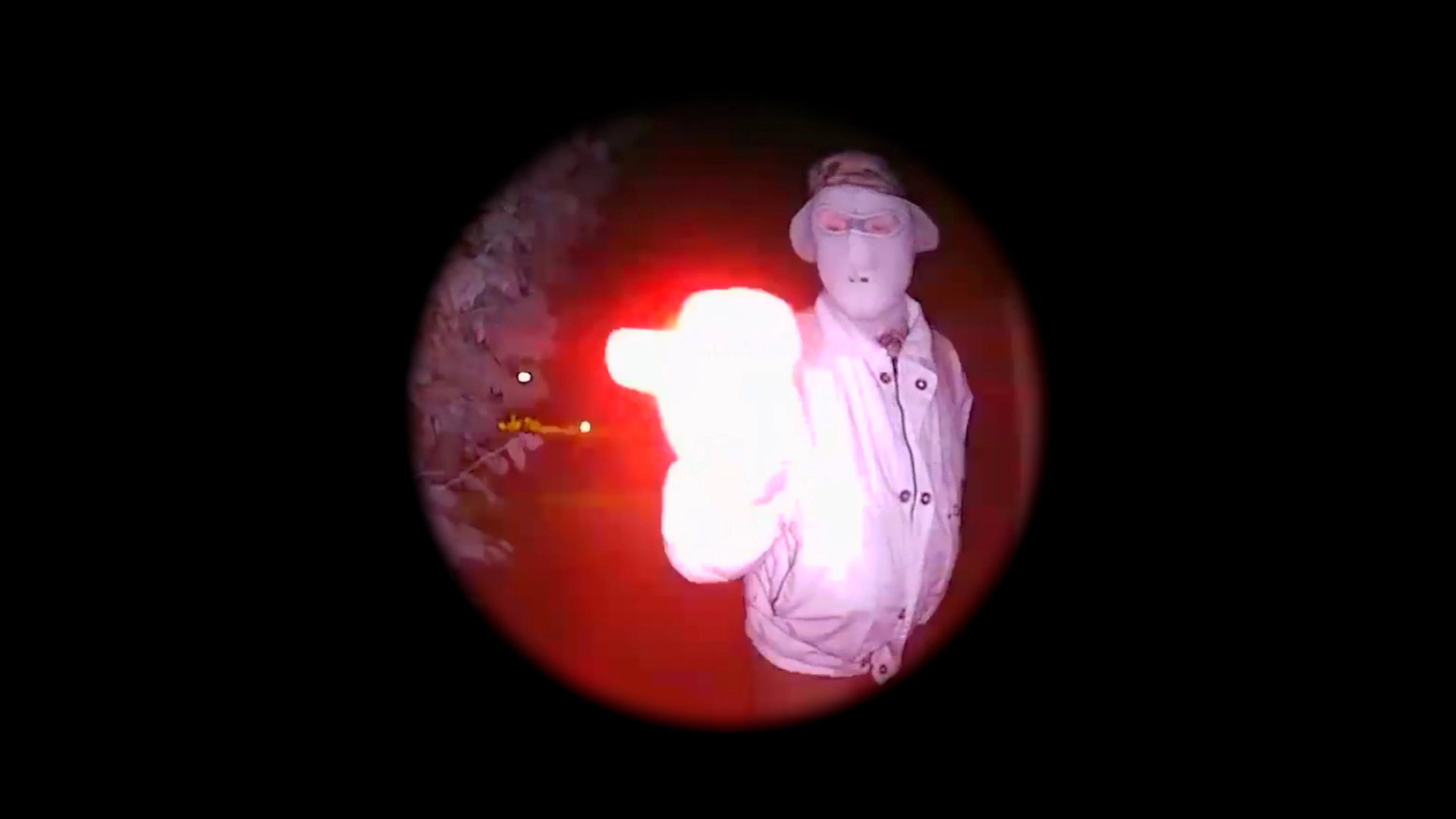
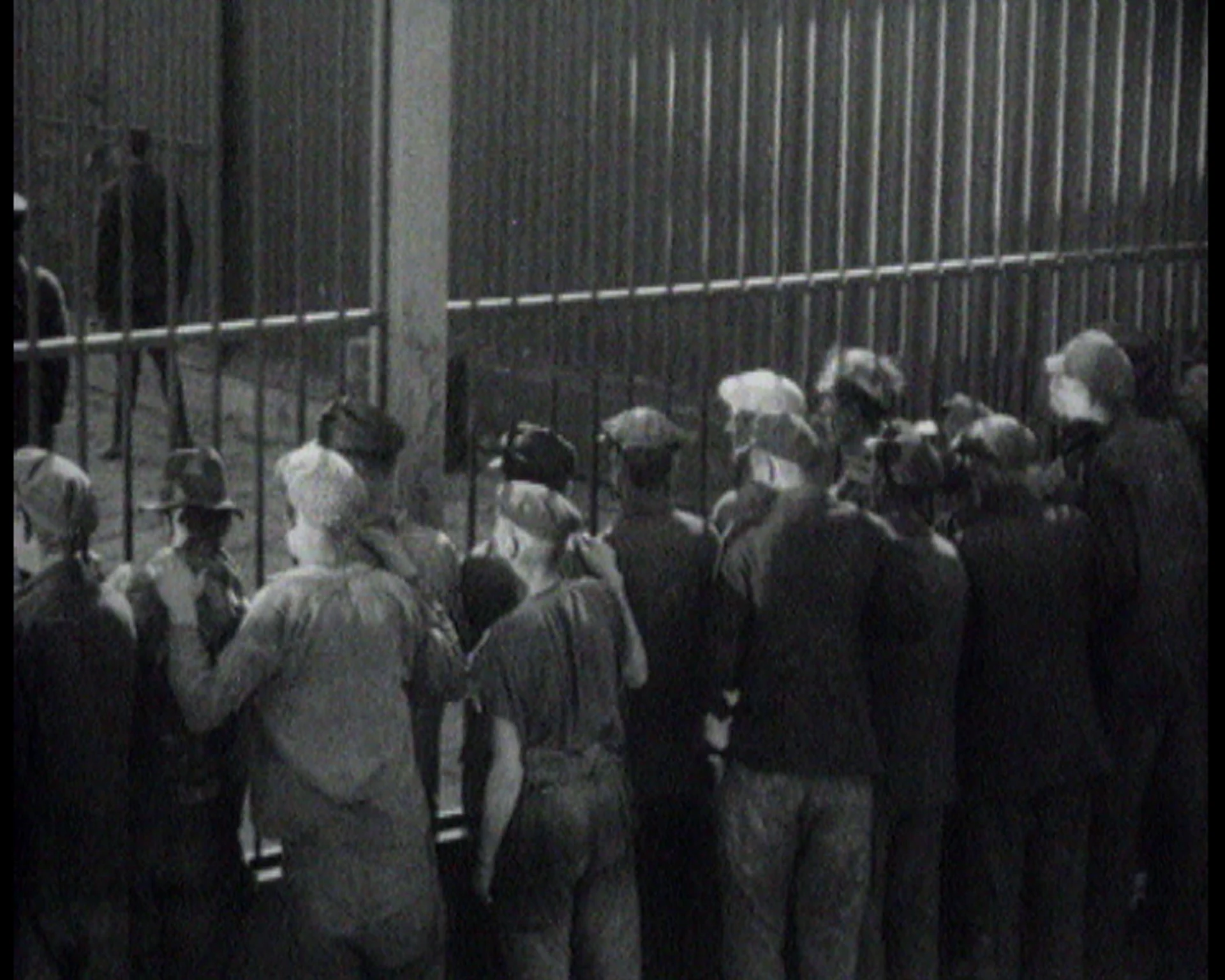
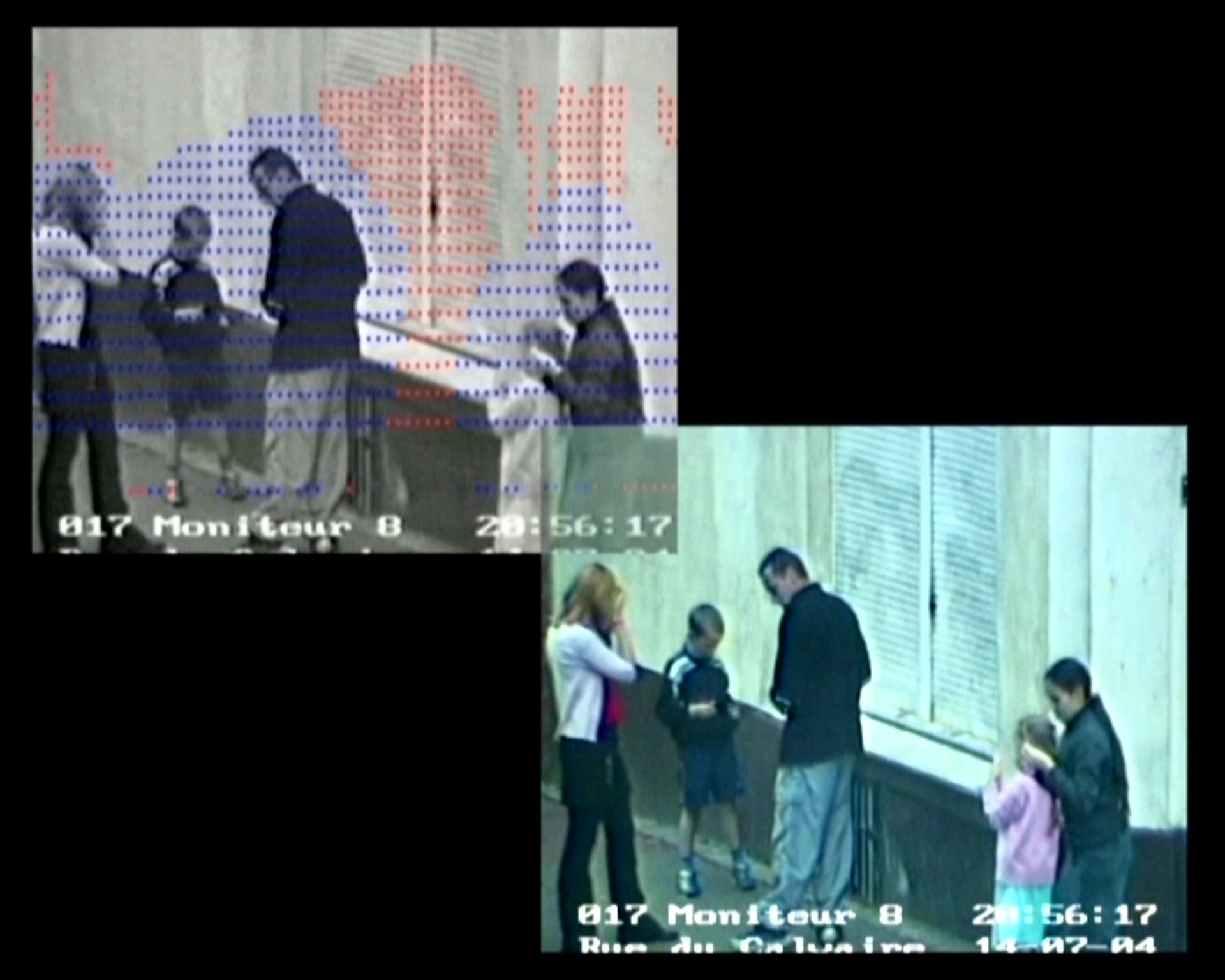
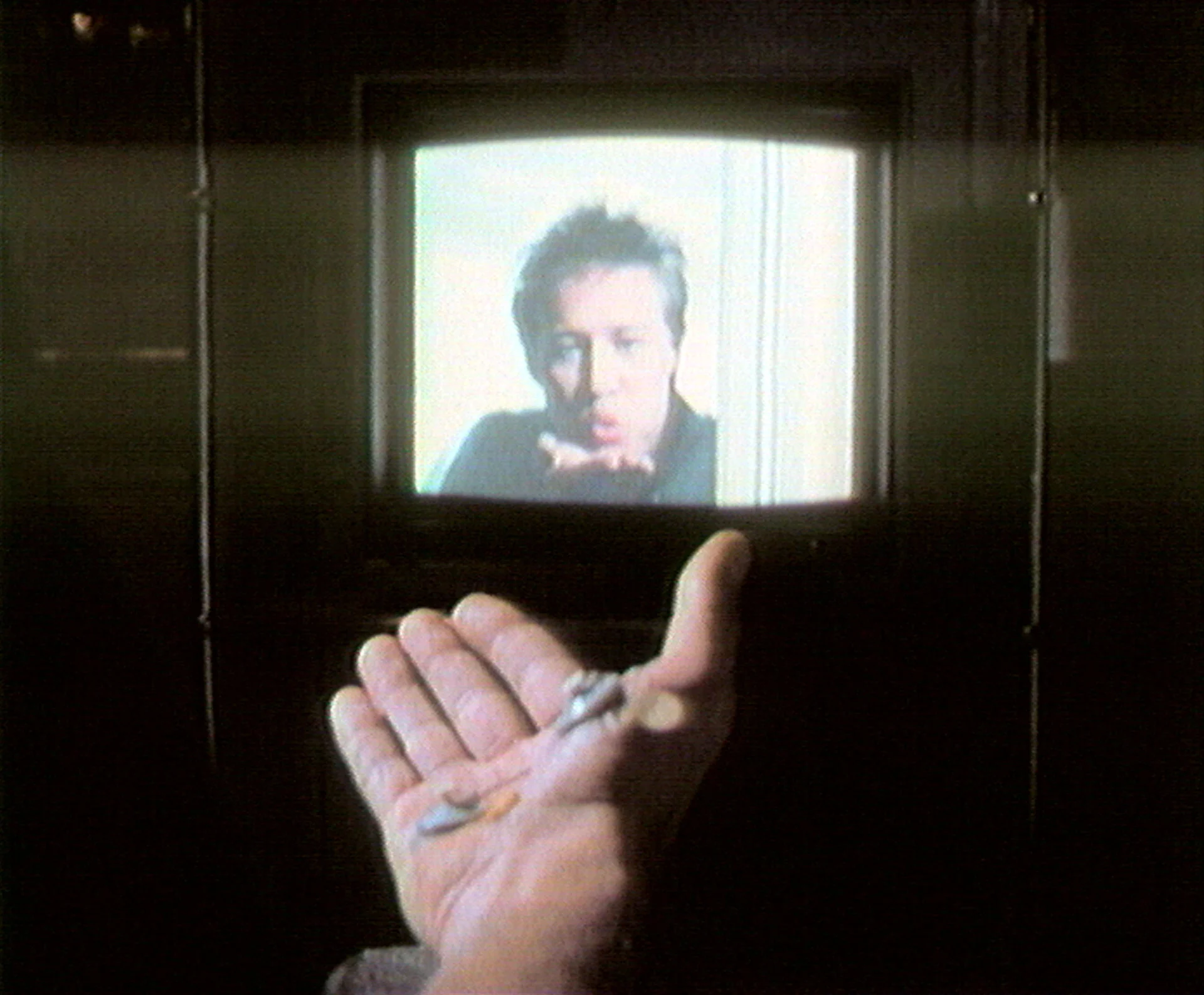
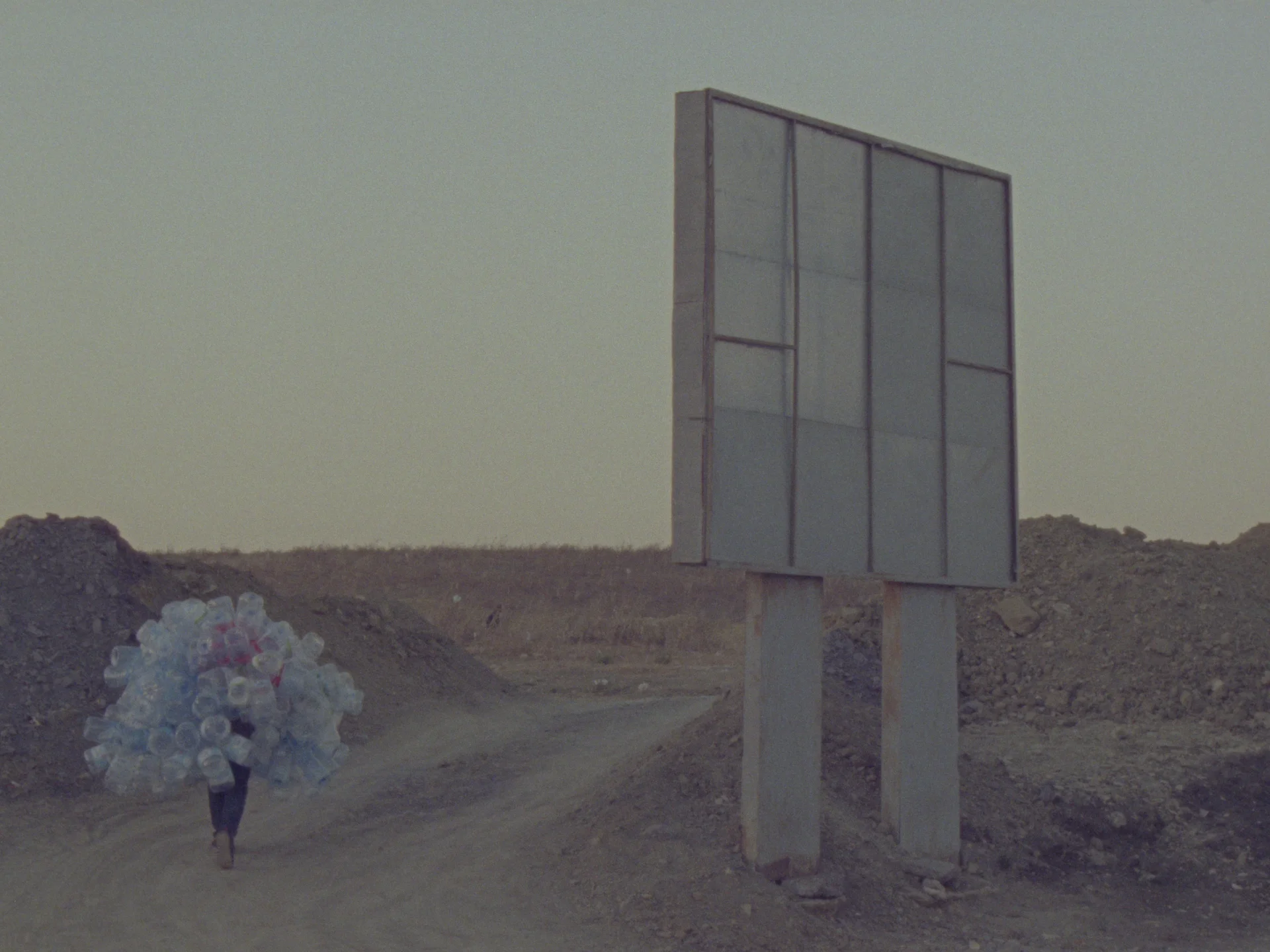
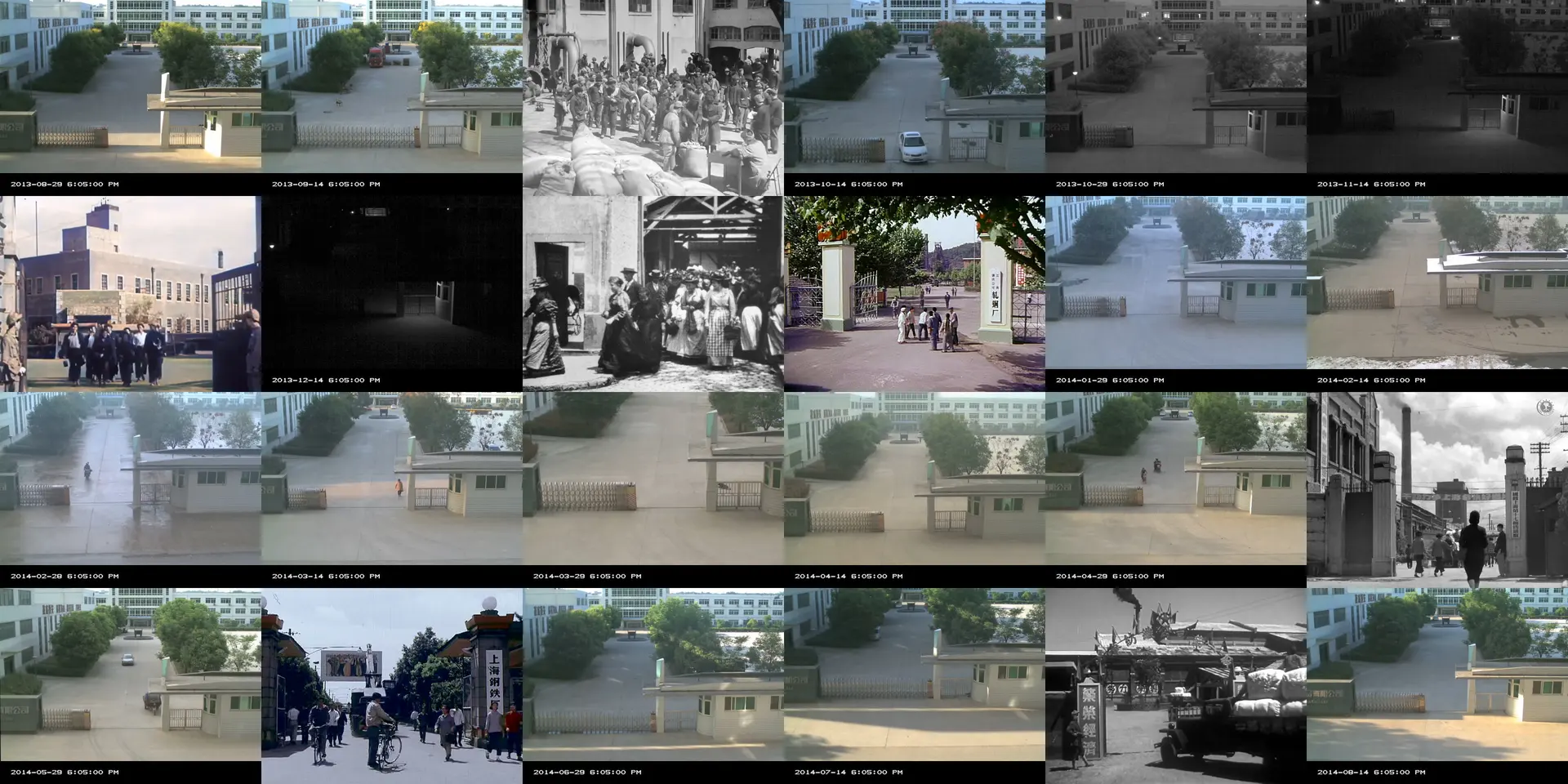

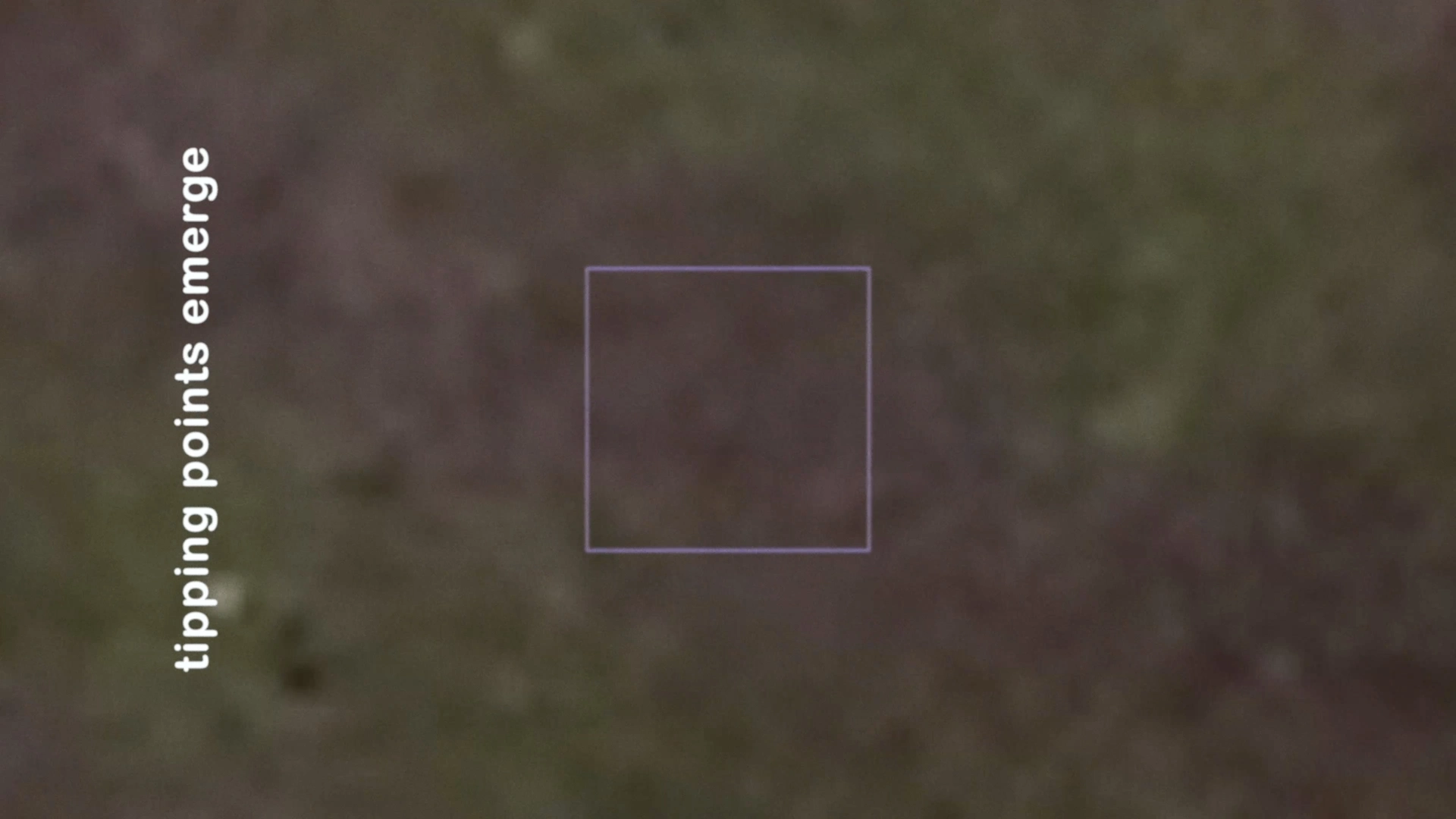
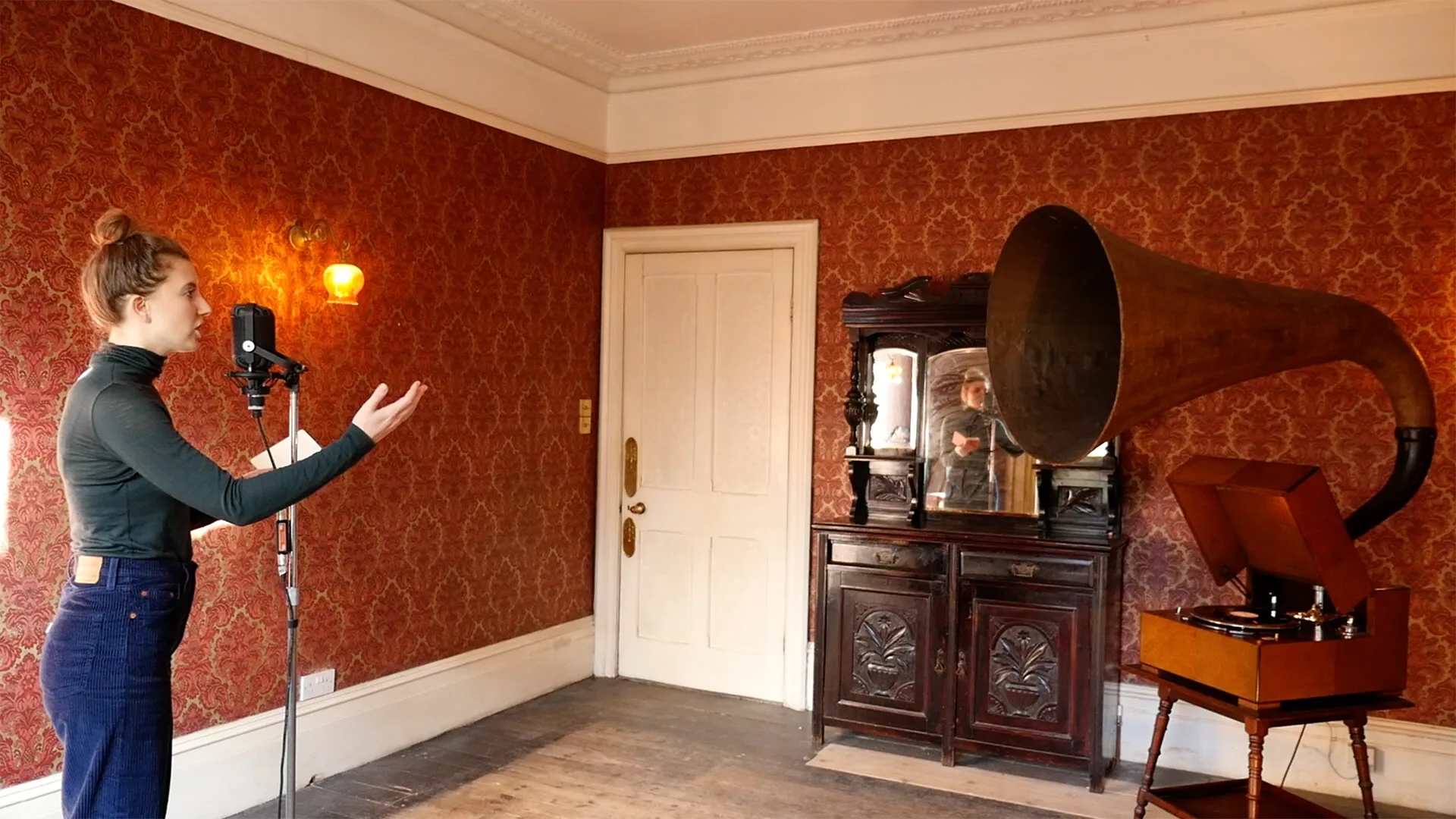
.webp)
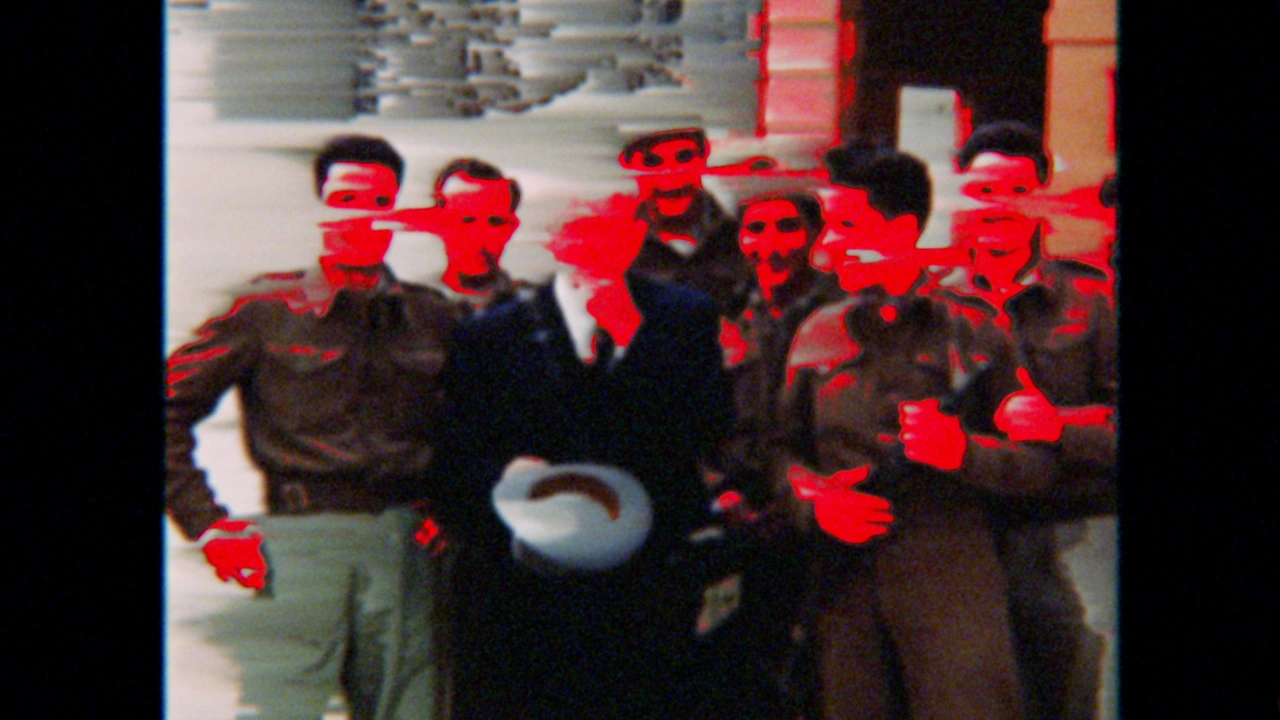
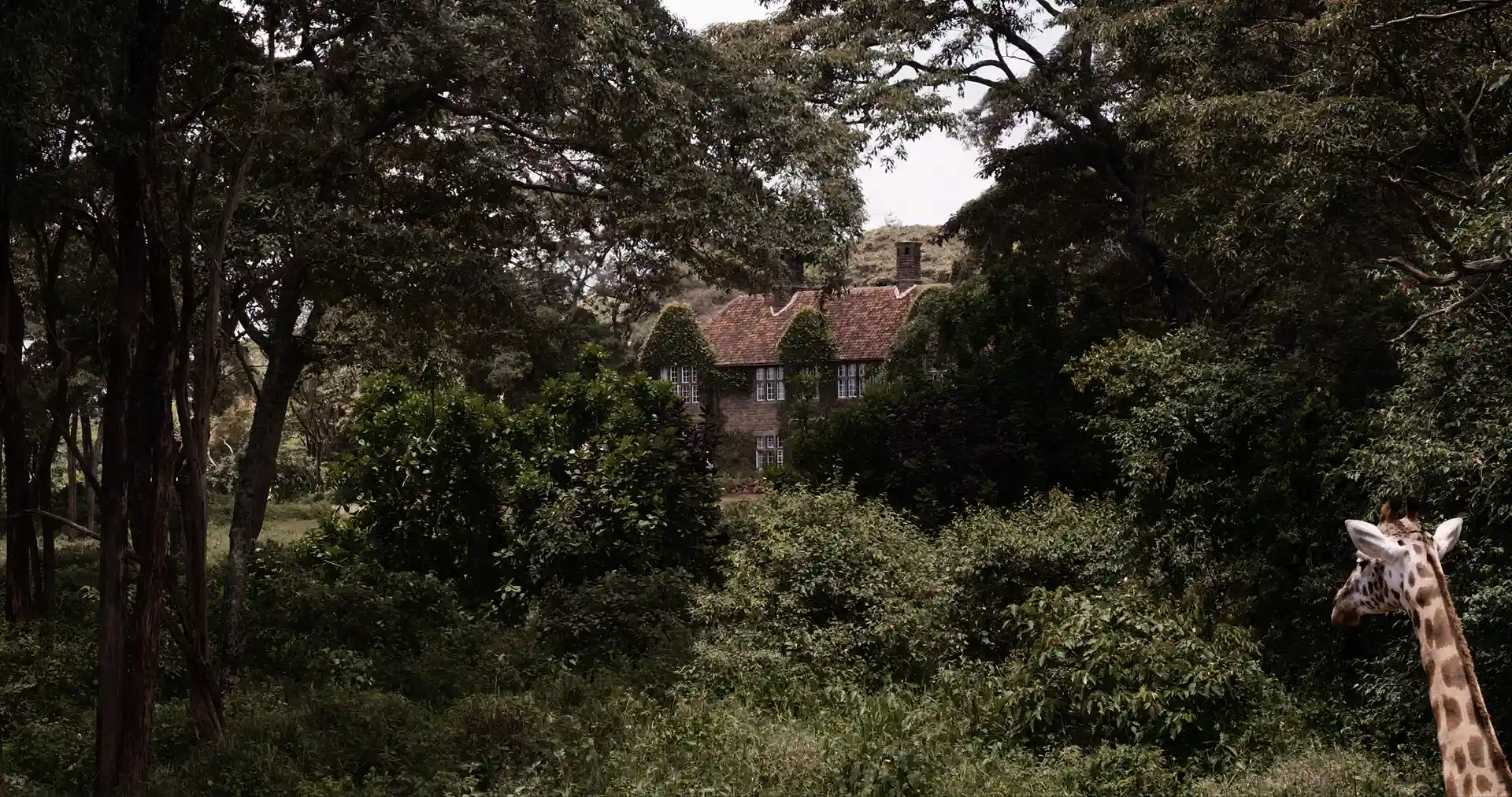
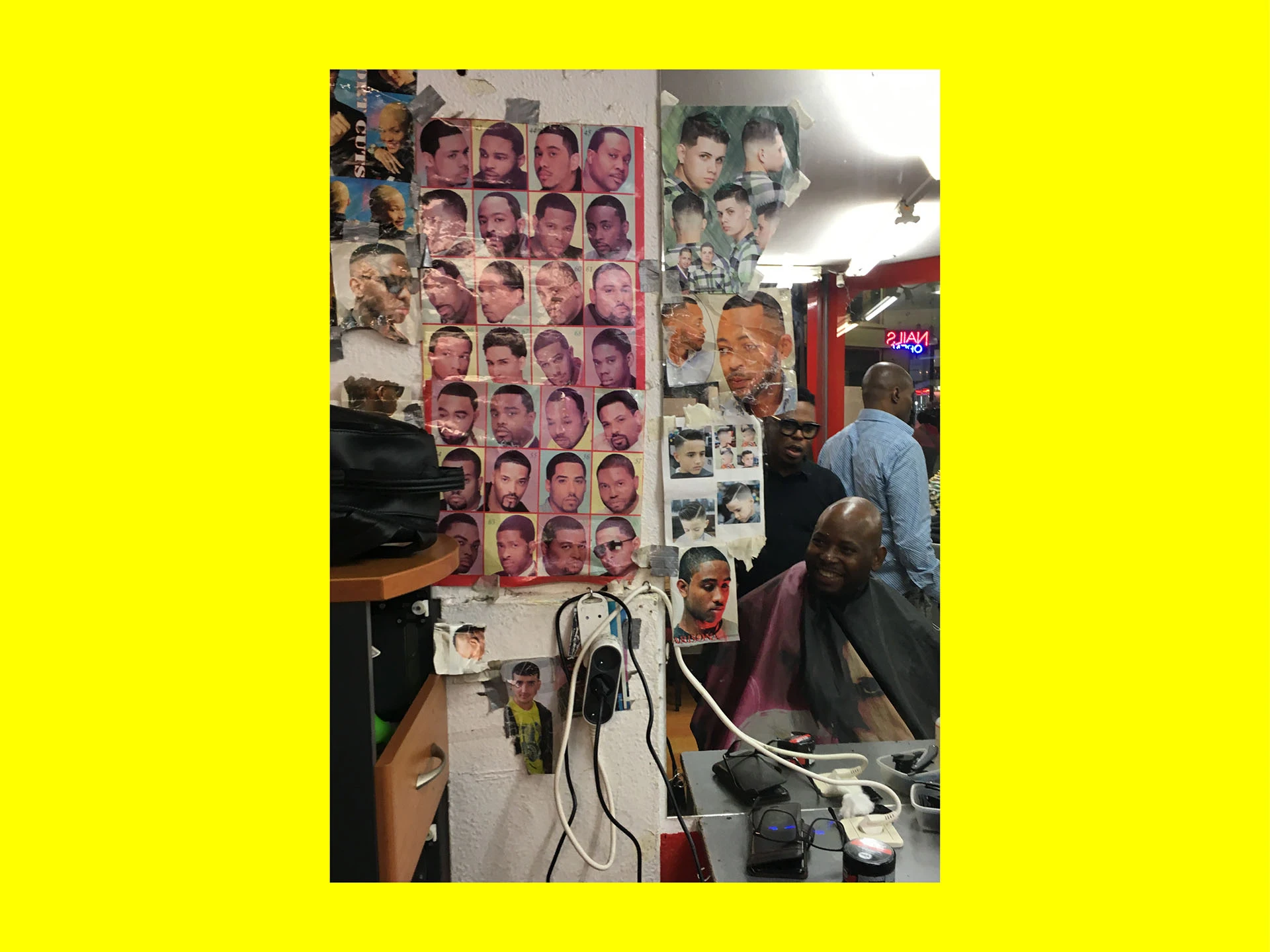
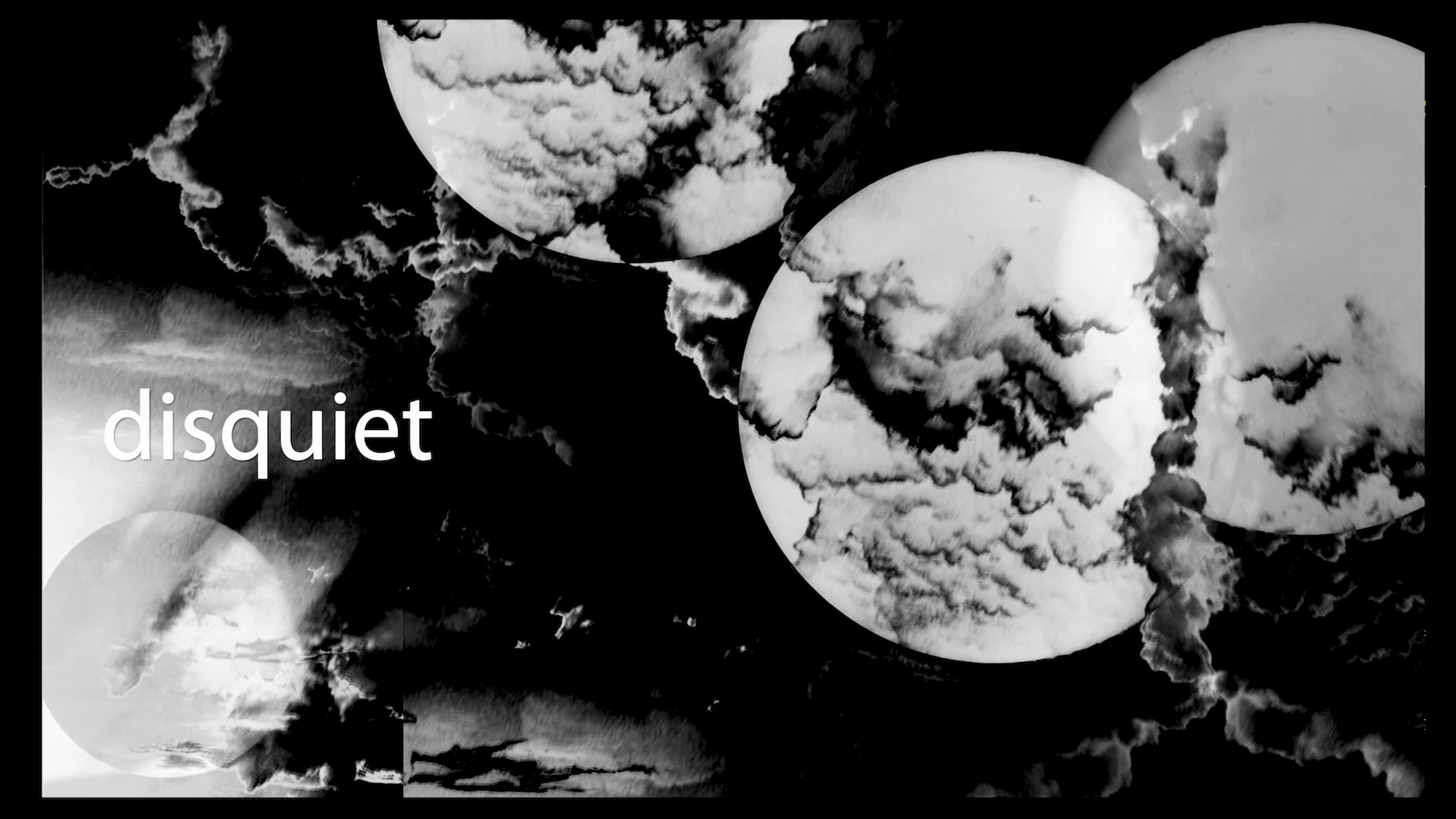
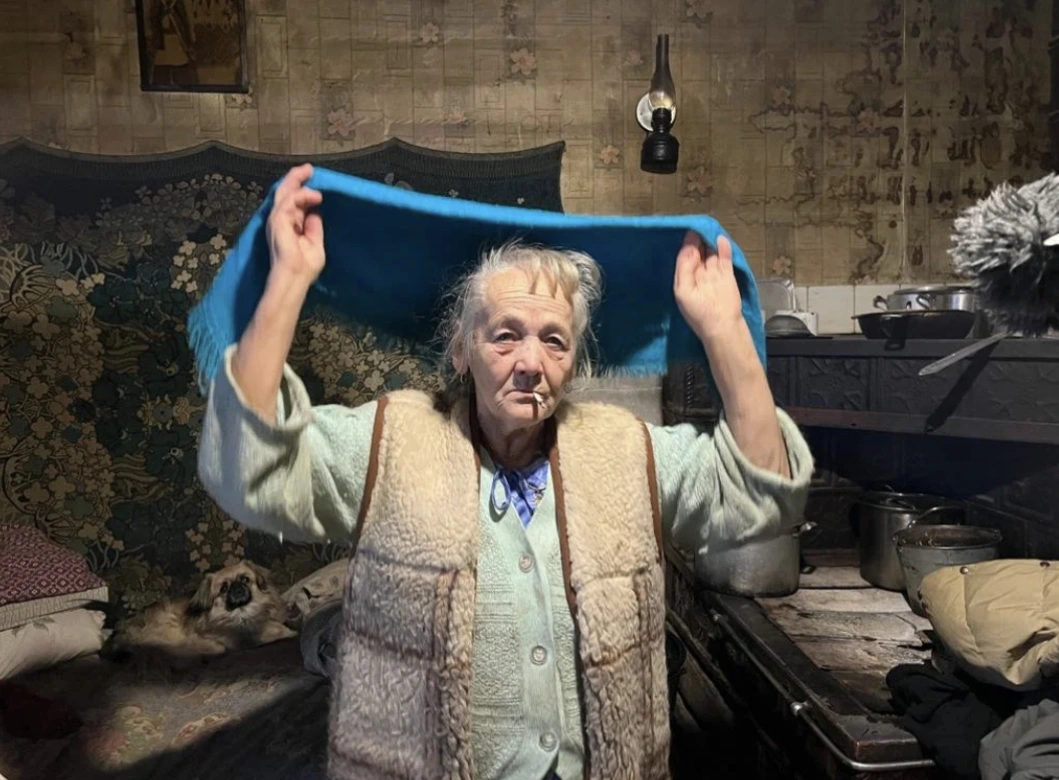
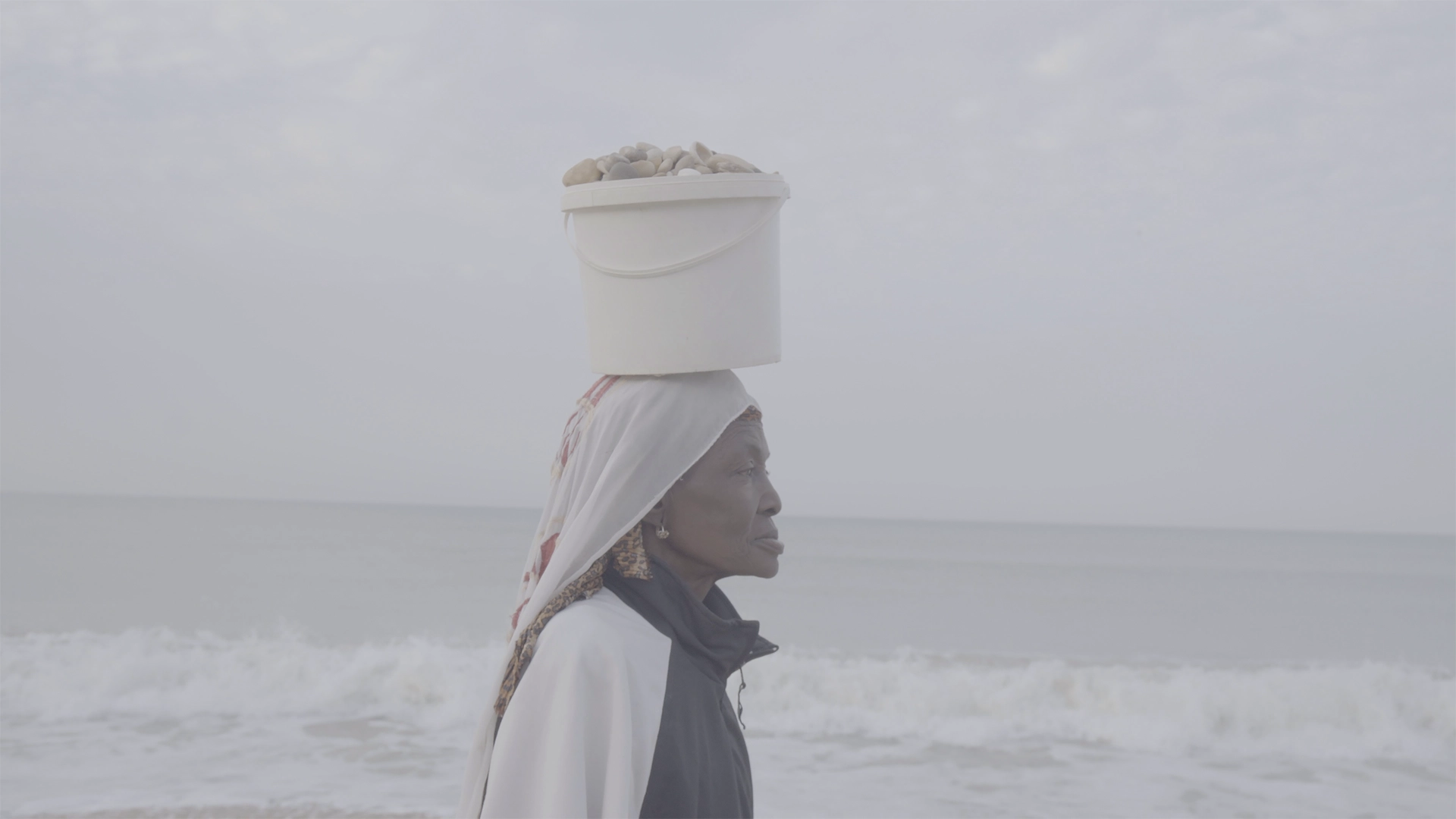
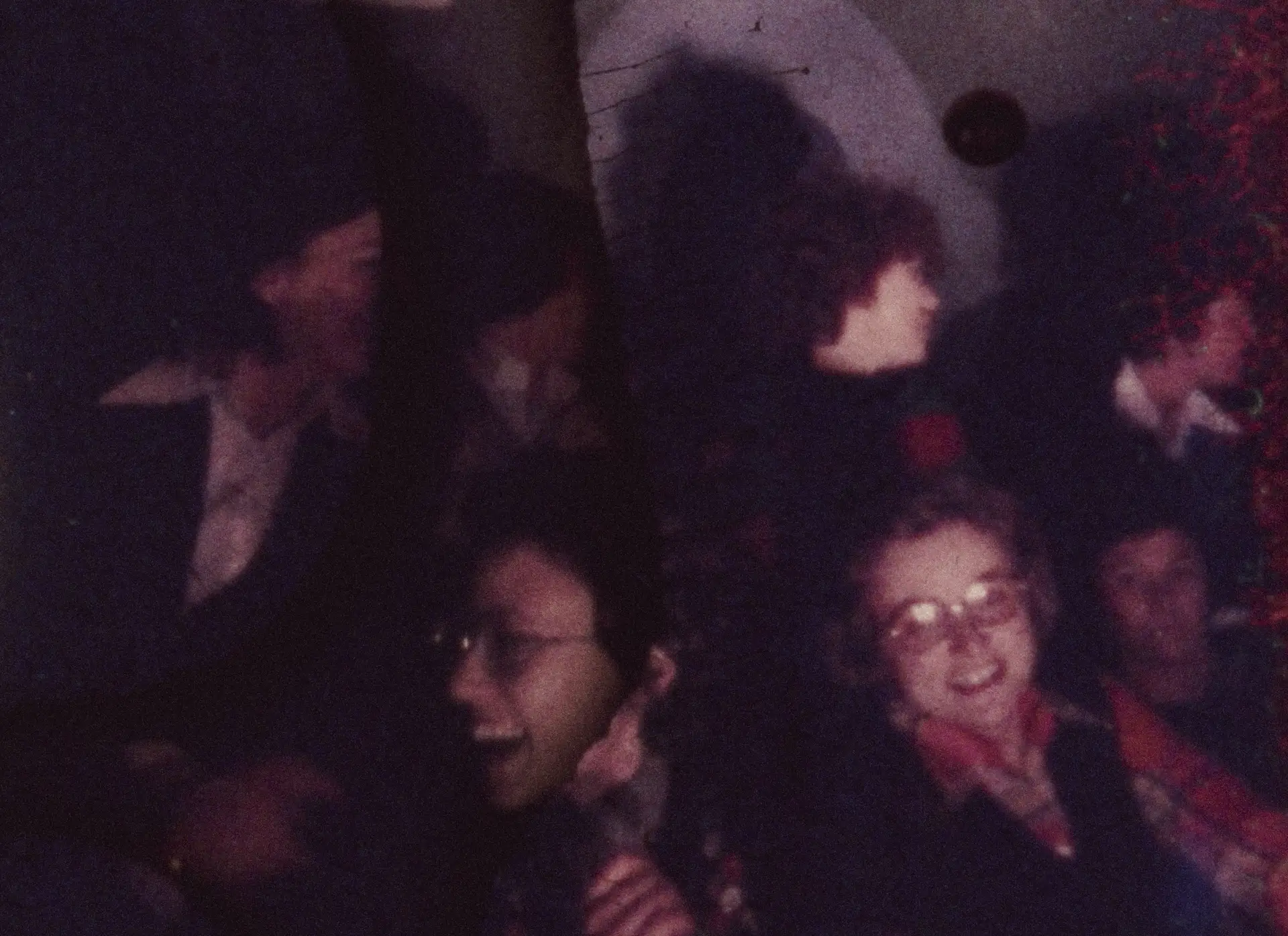
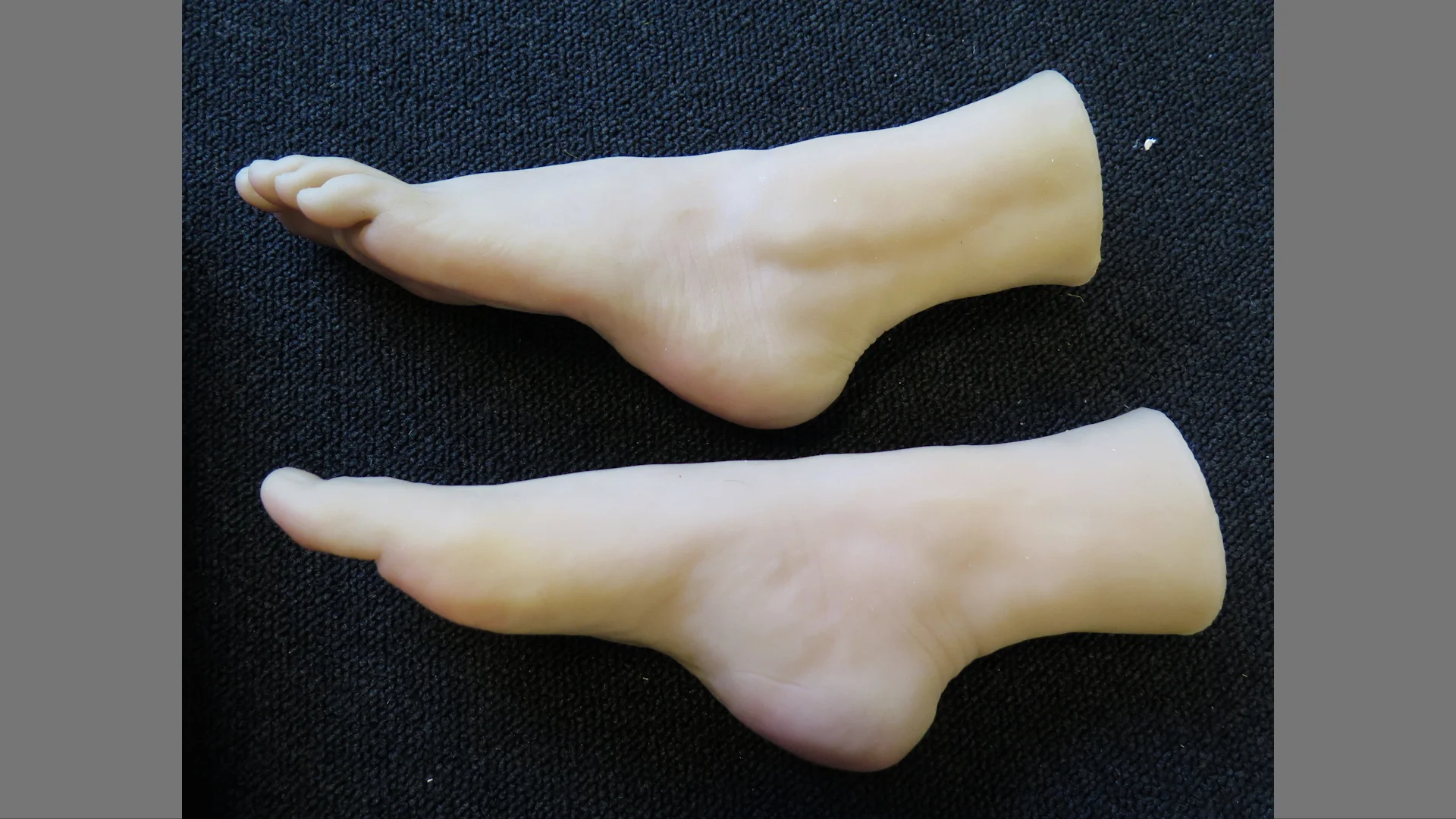
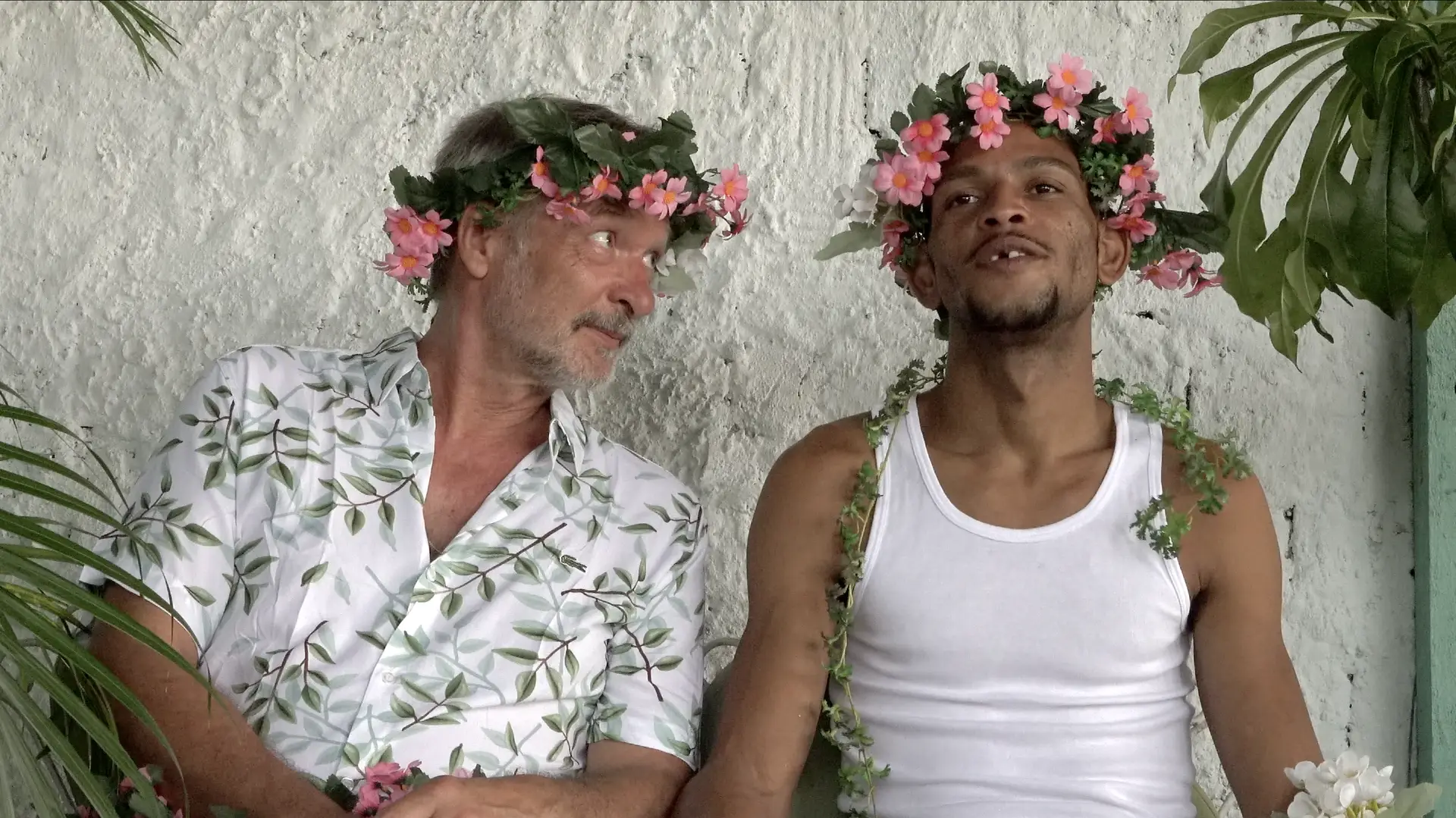
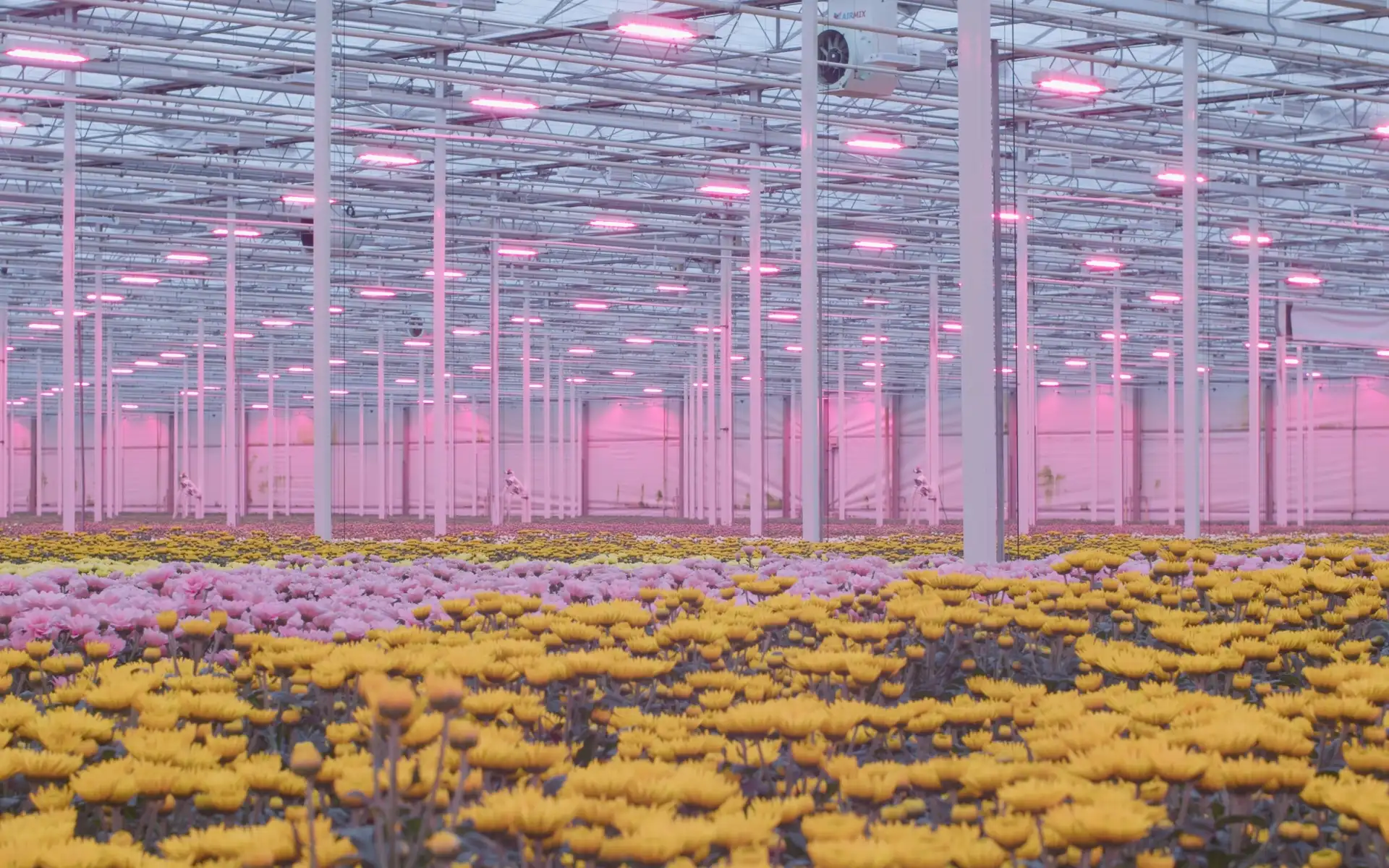
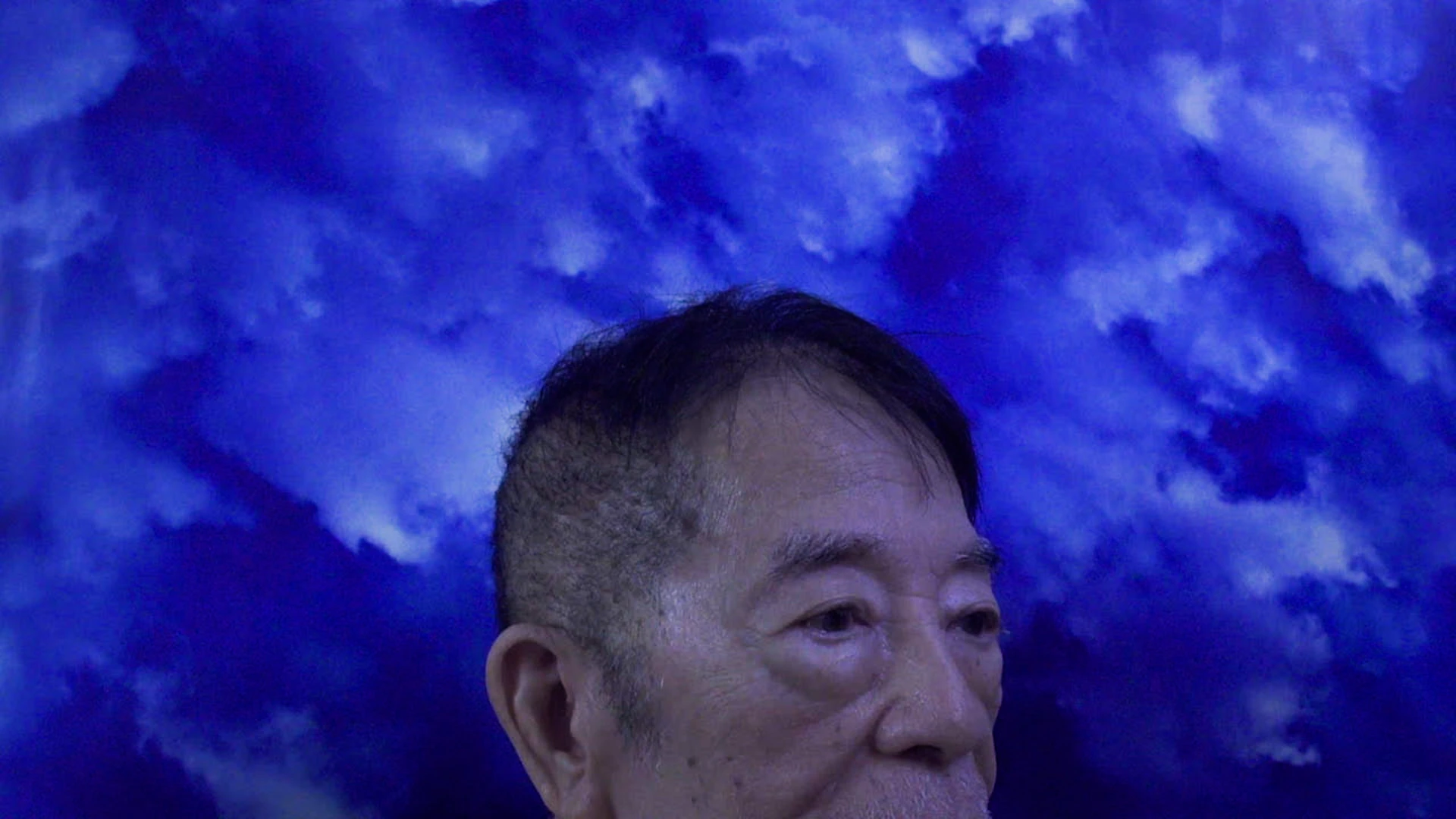
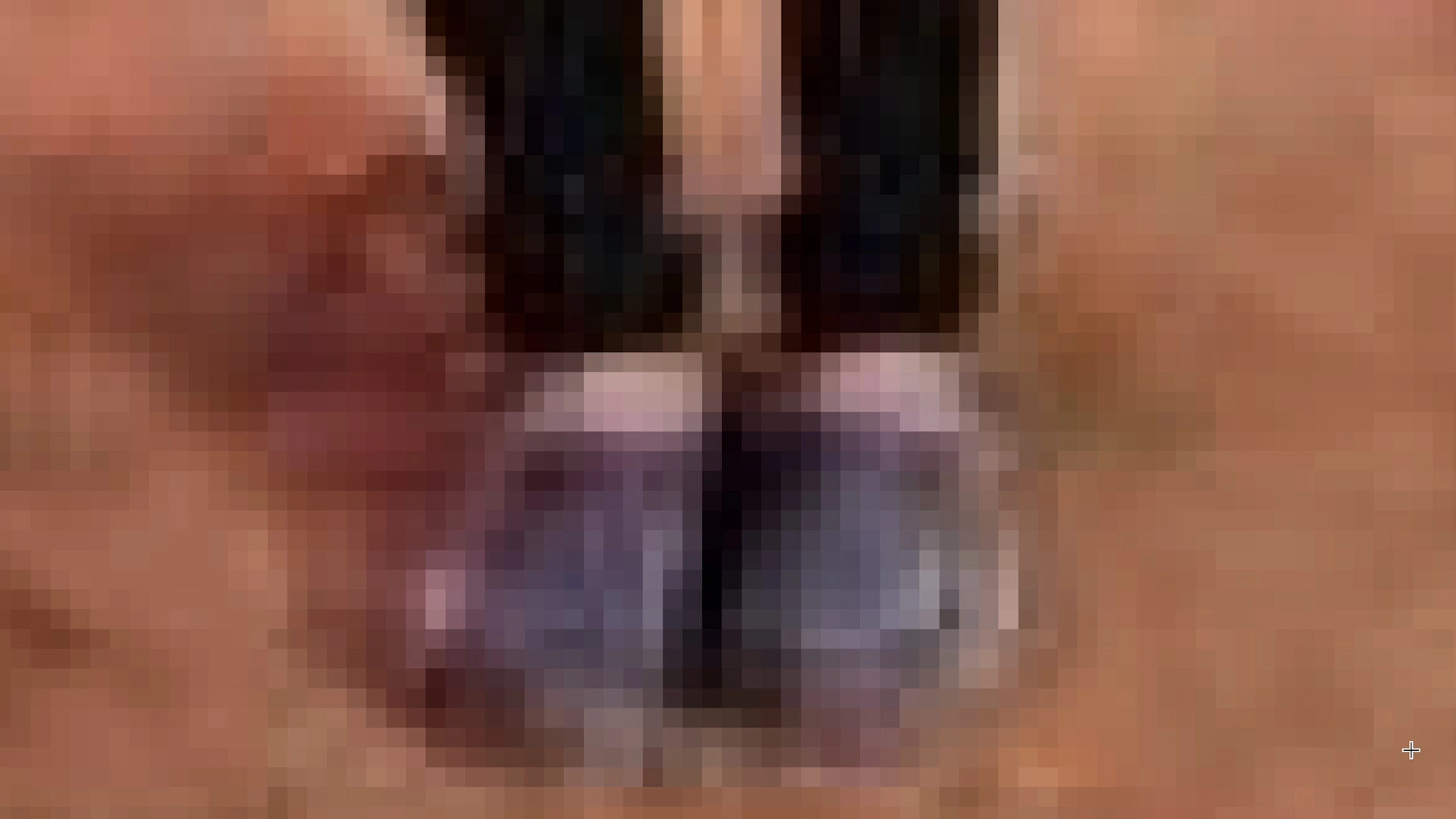
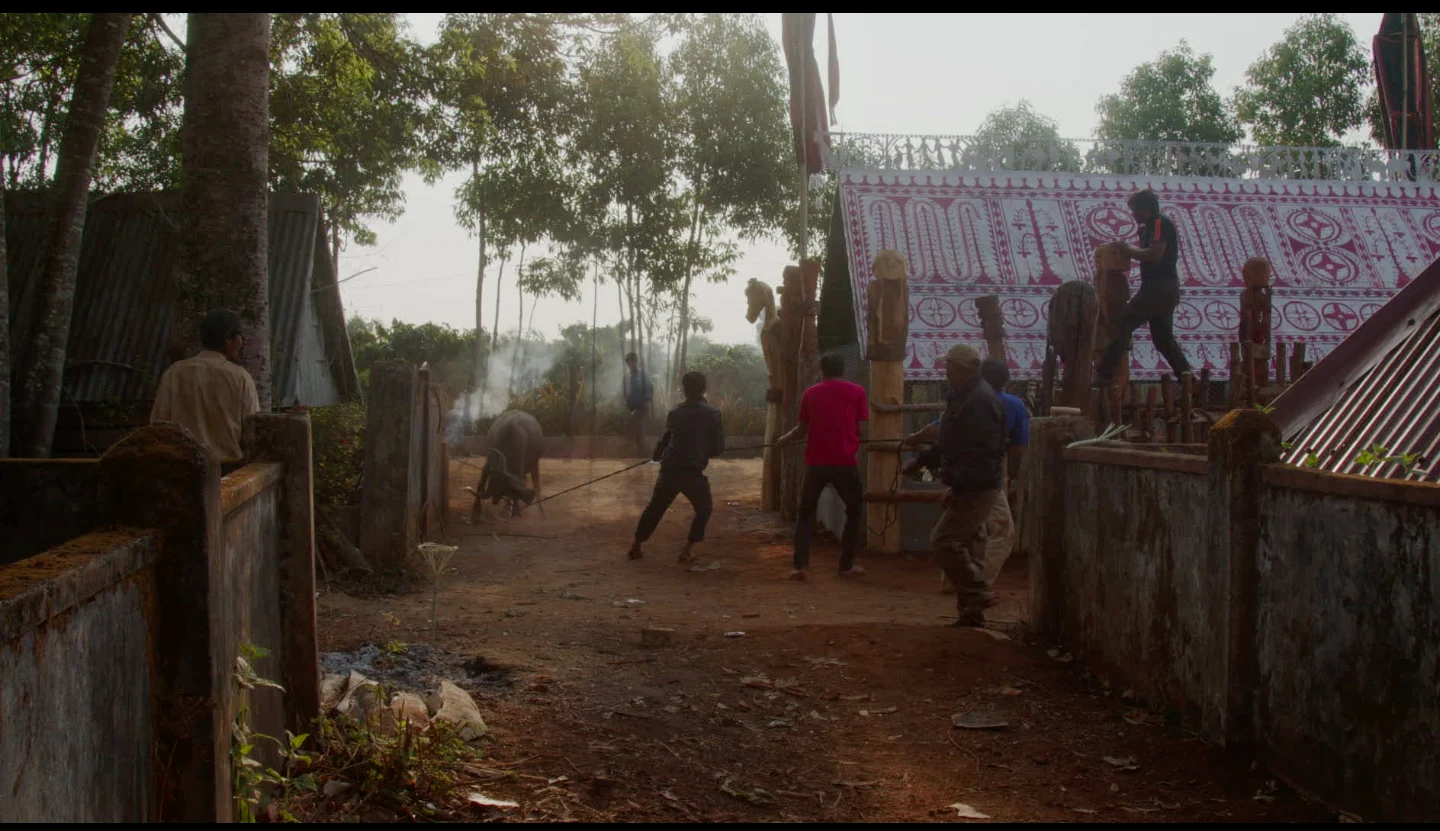
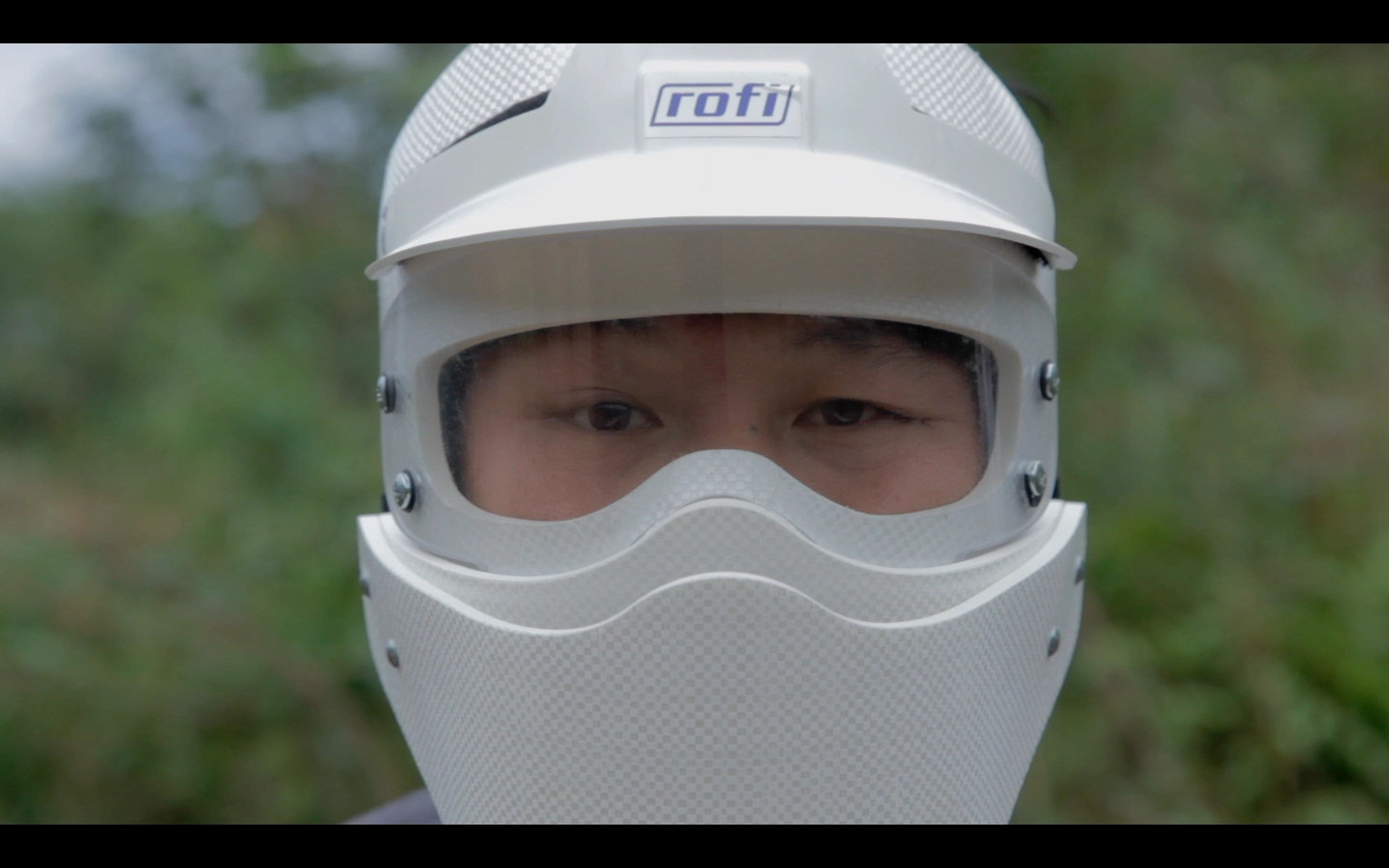
.webp)
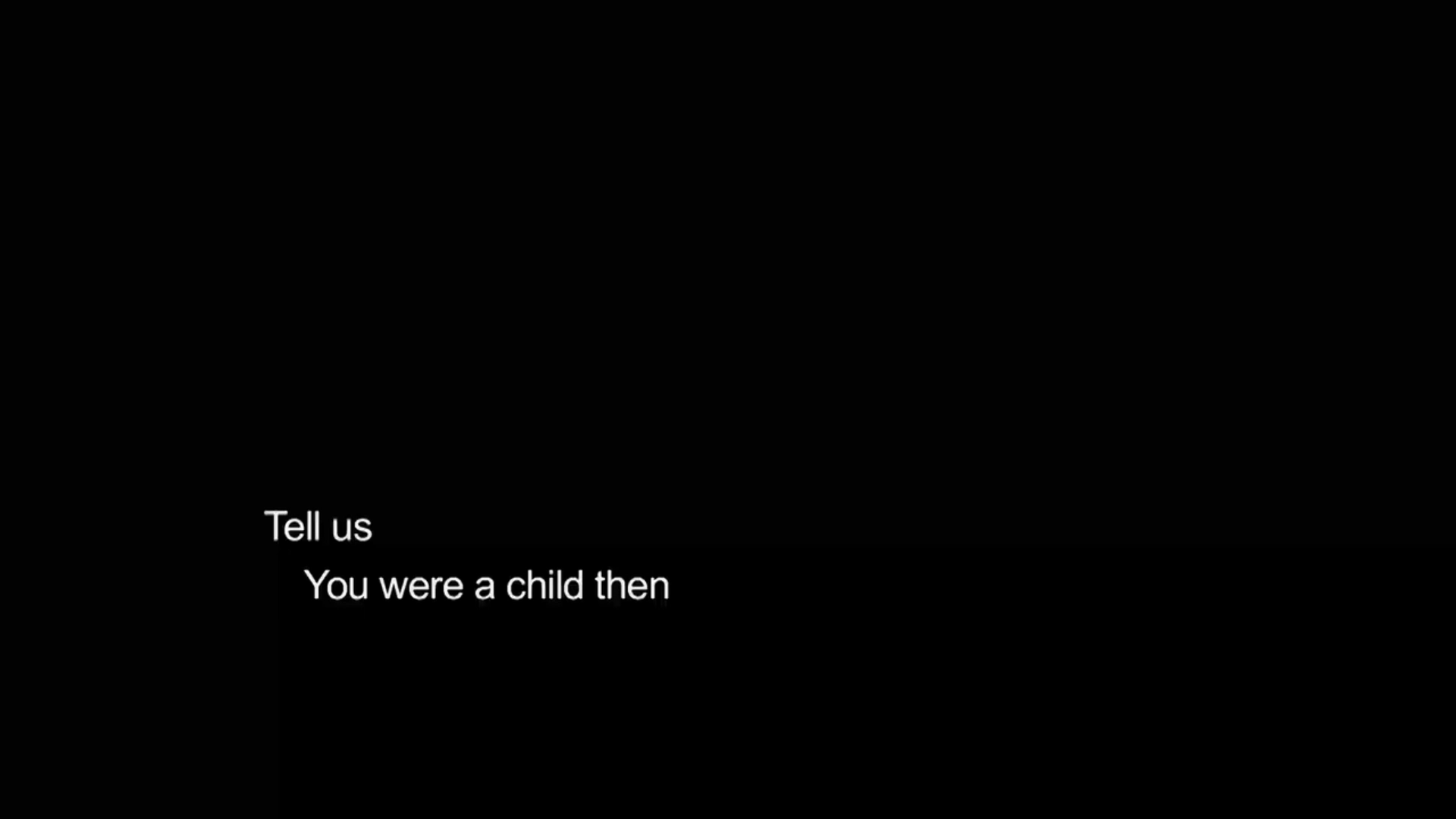
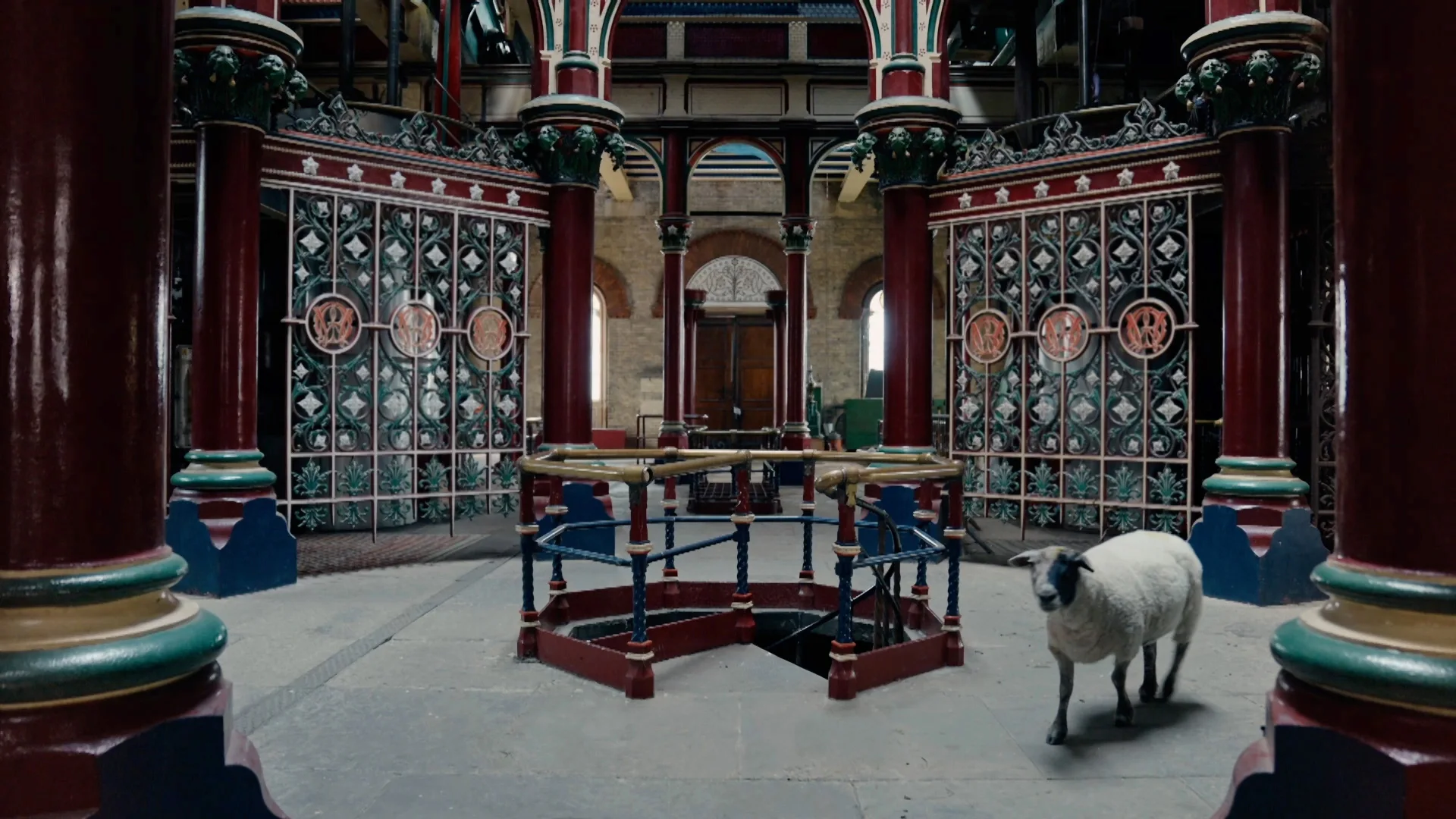
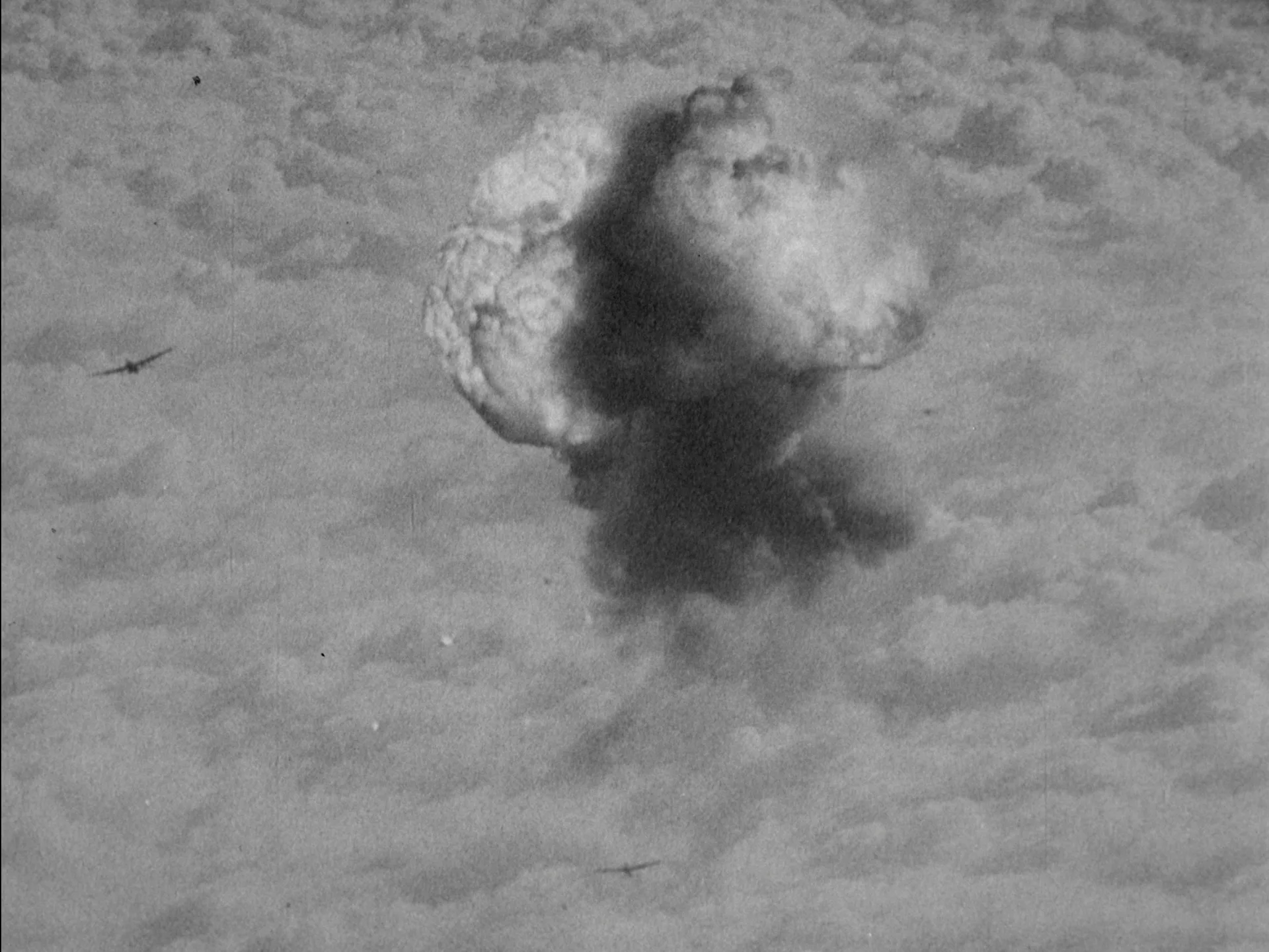
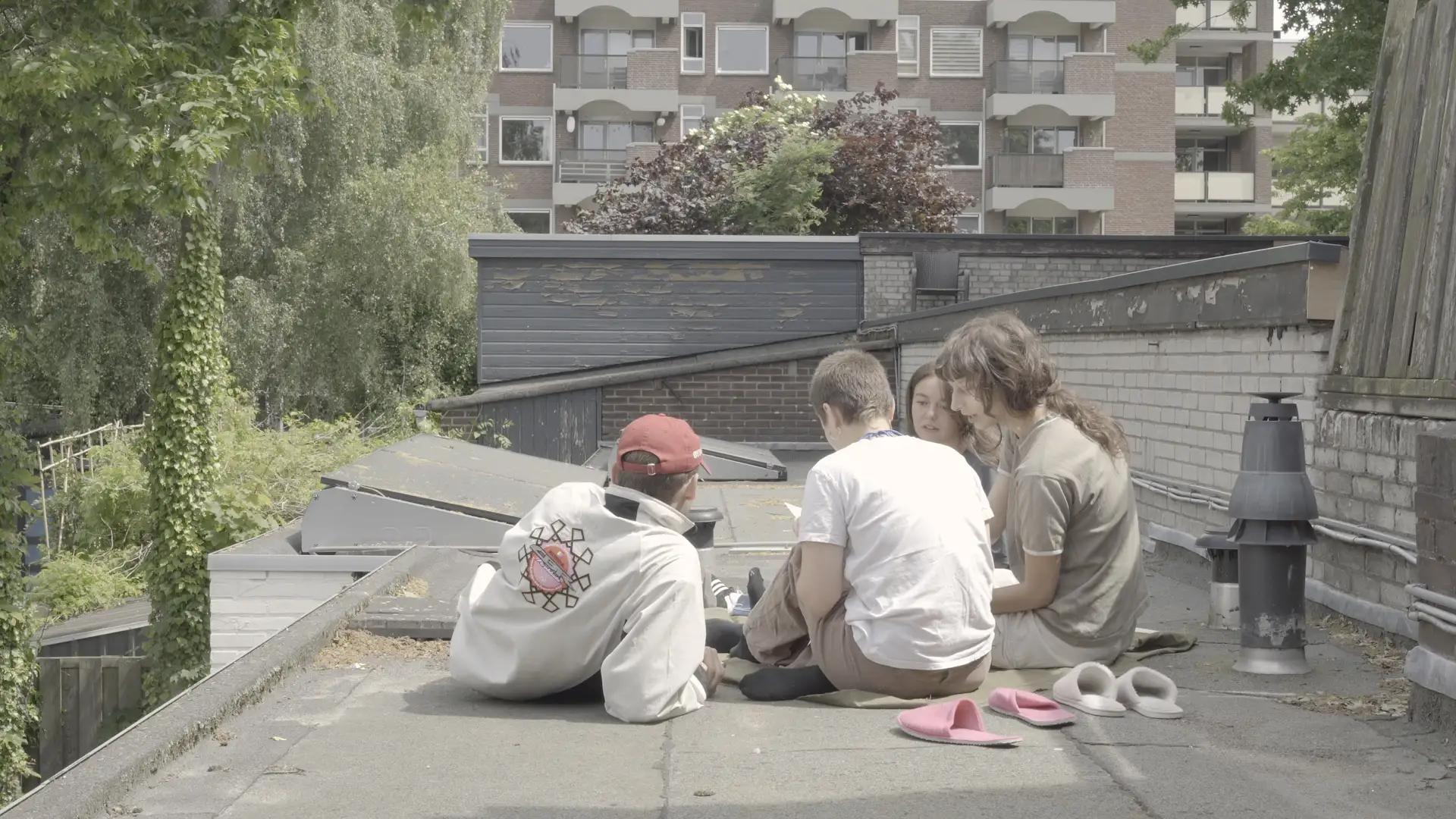
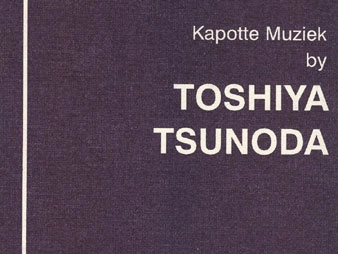
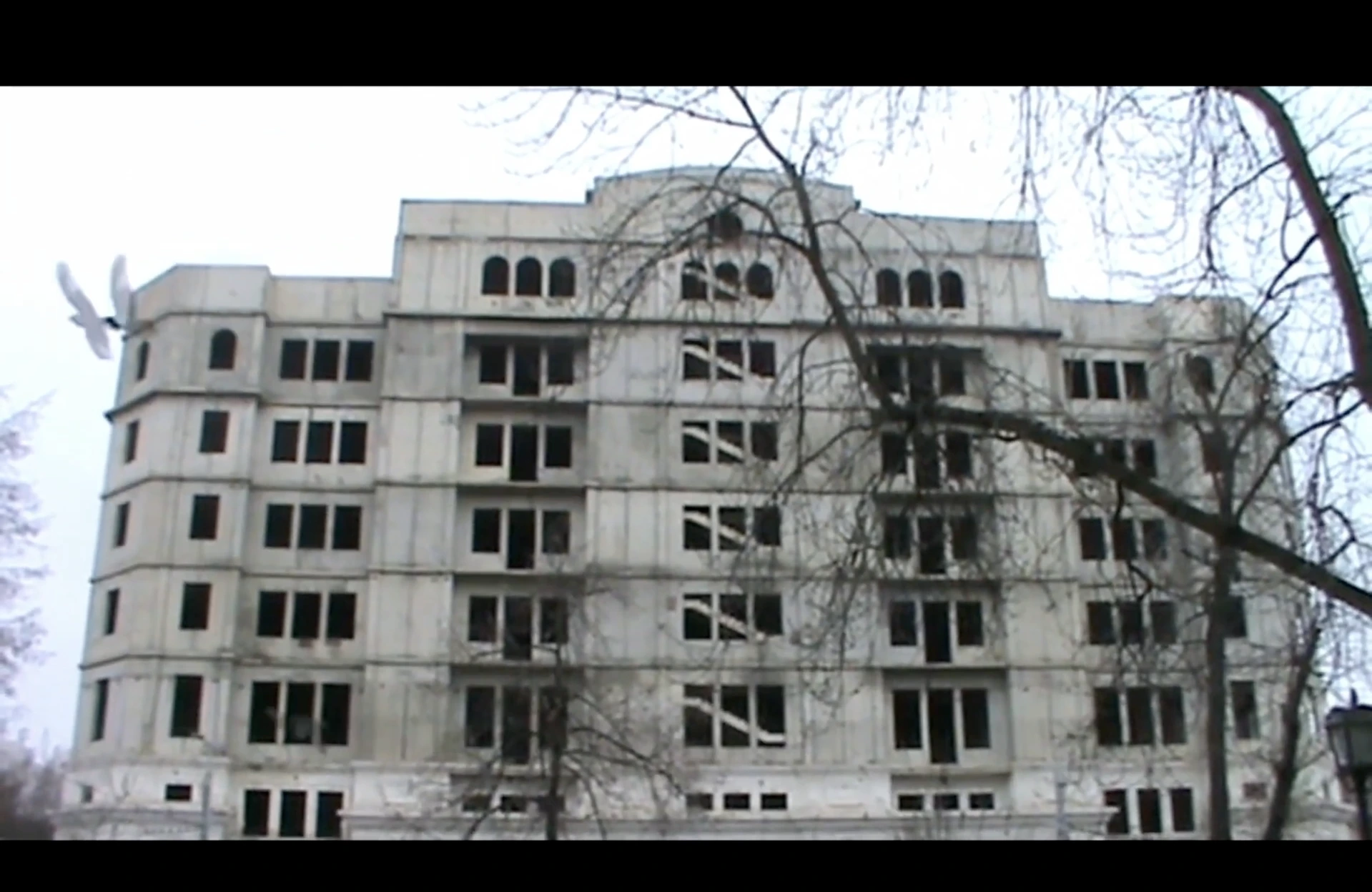
.webp)